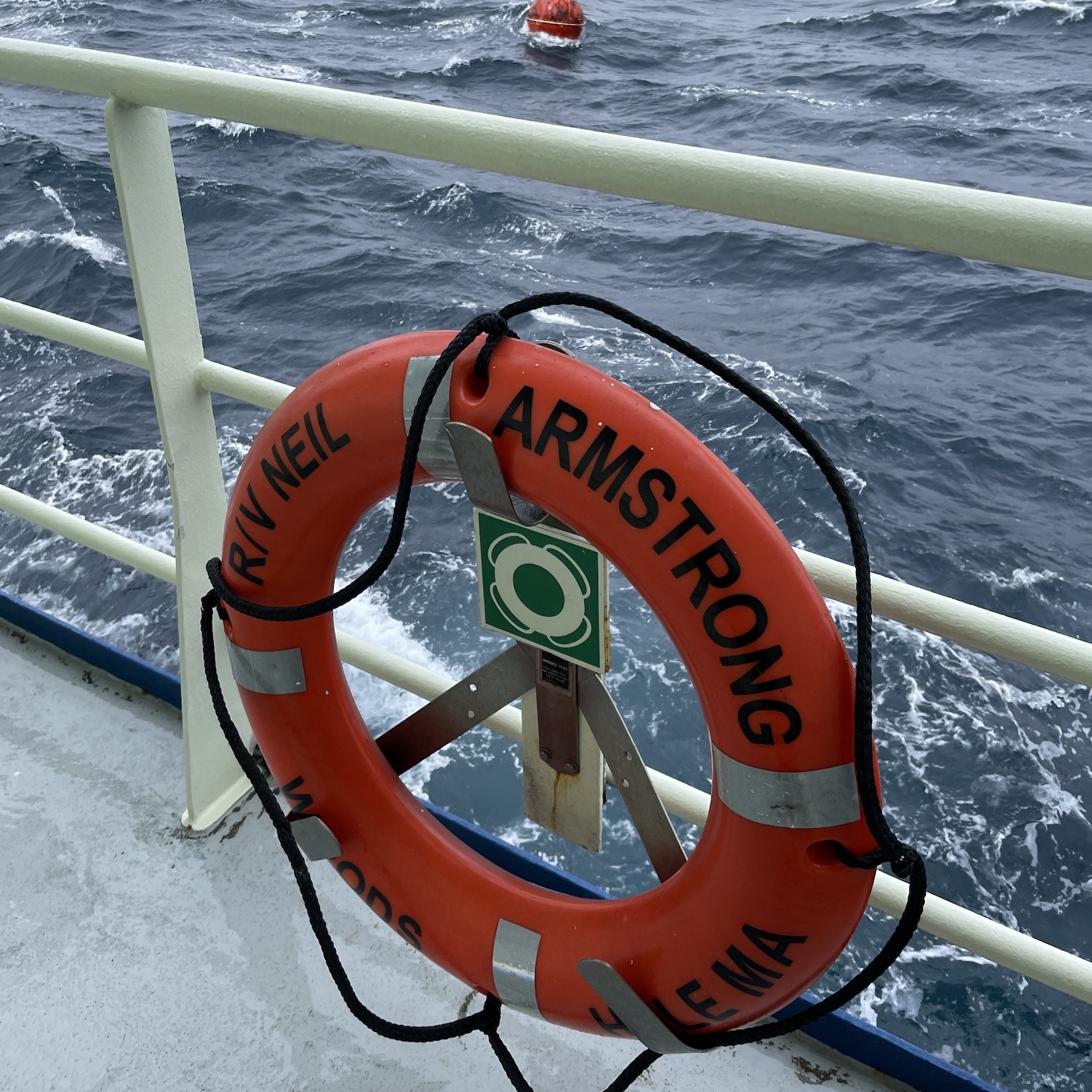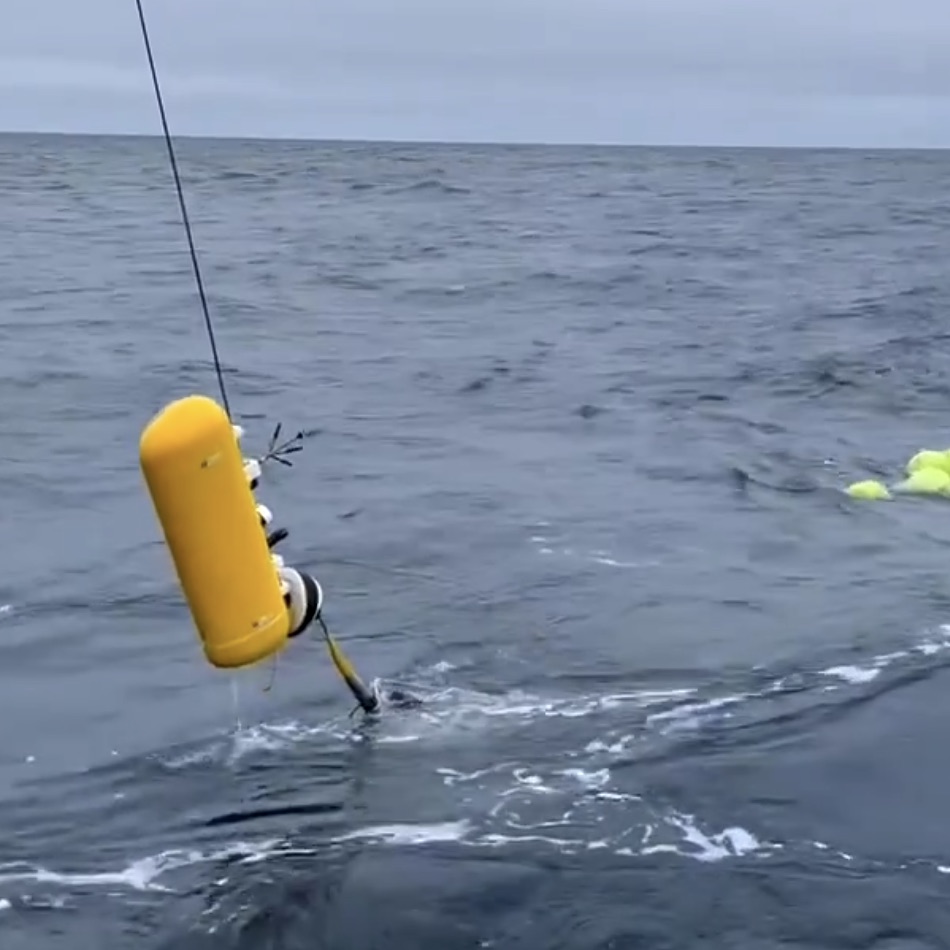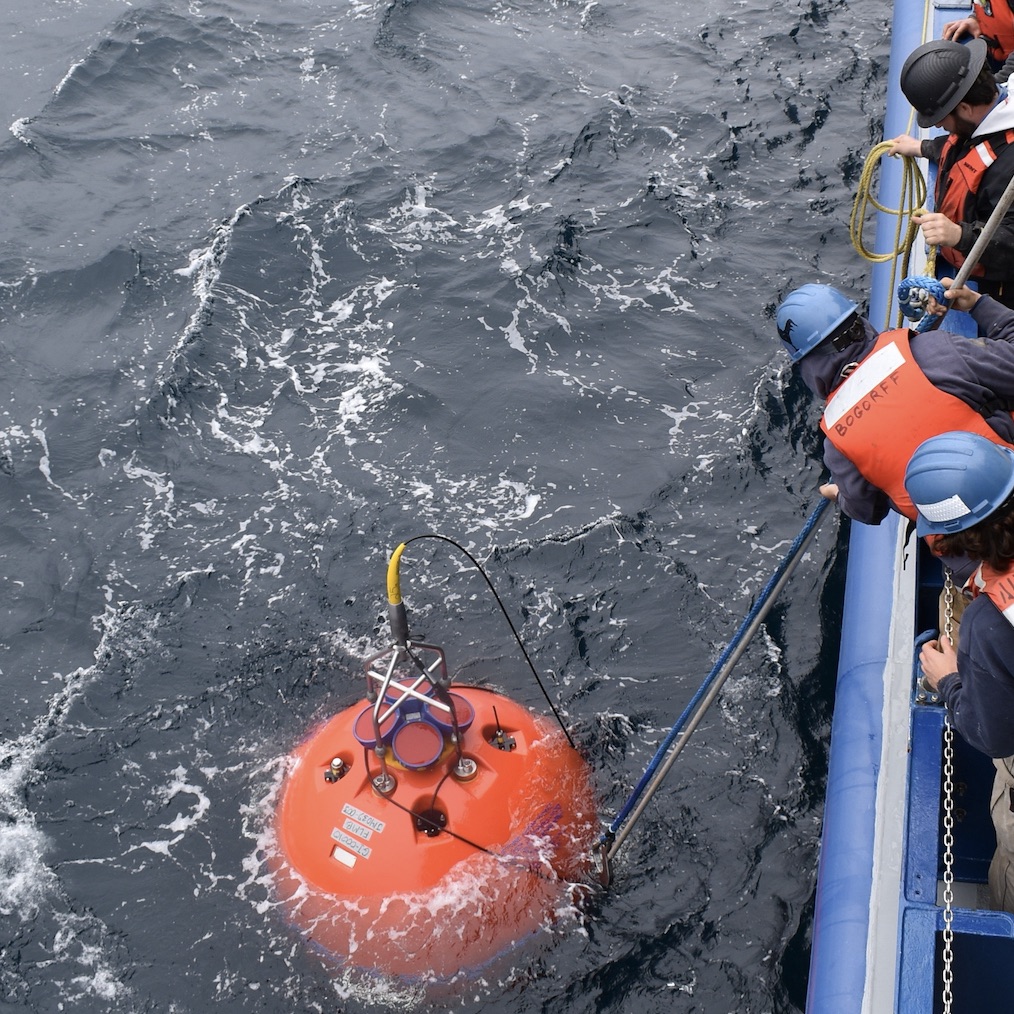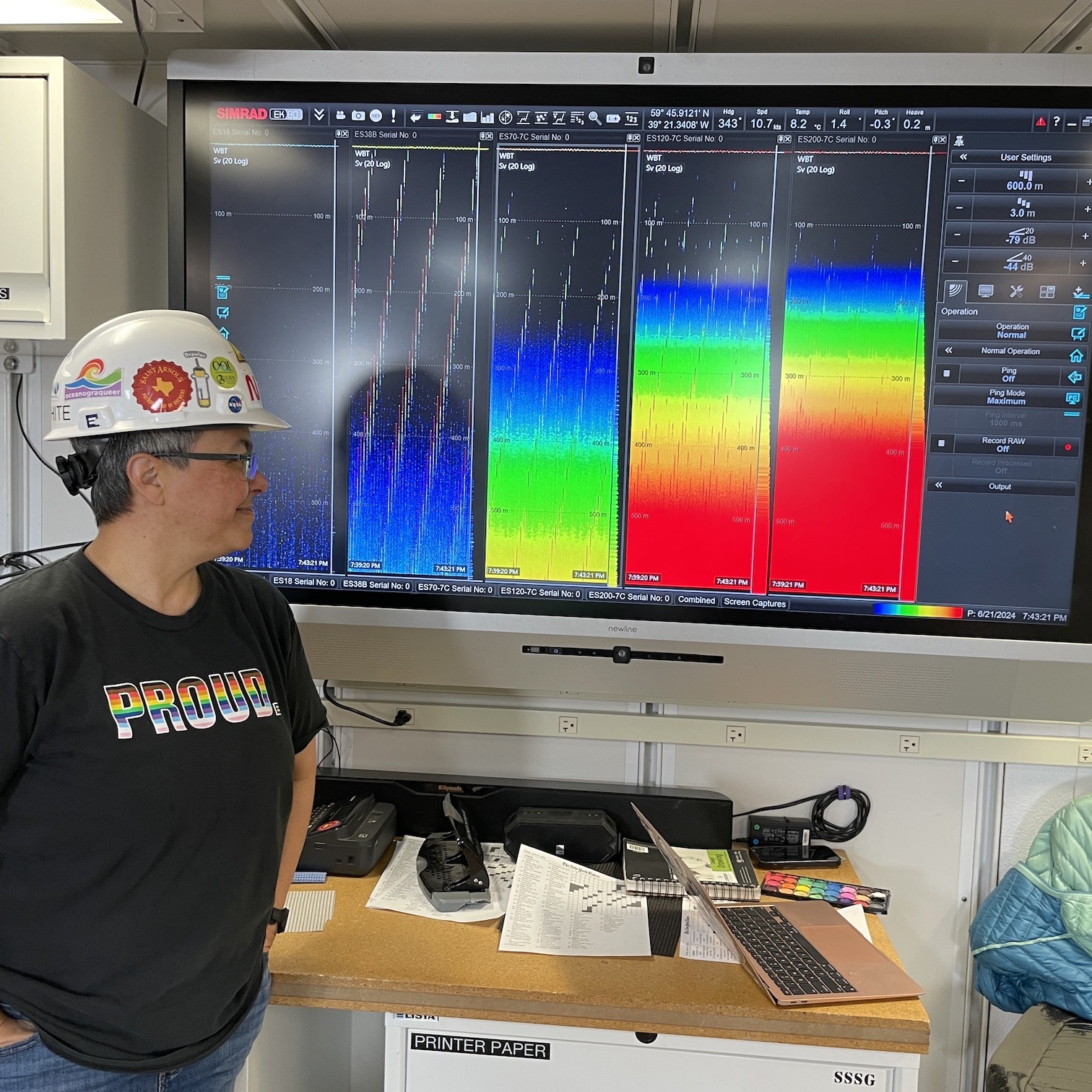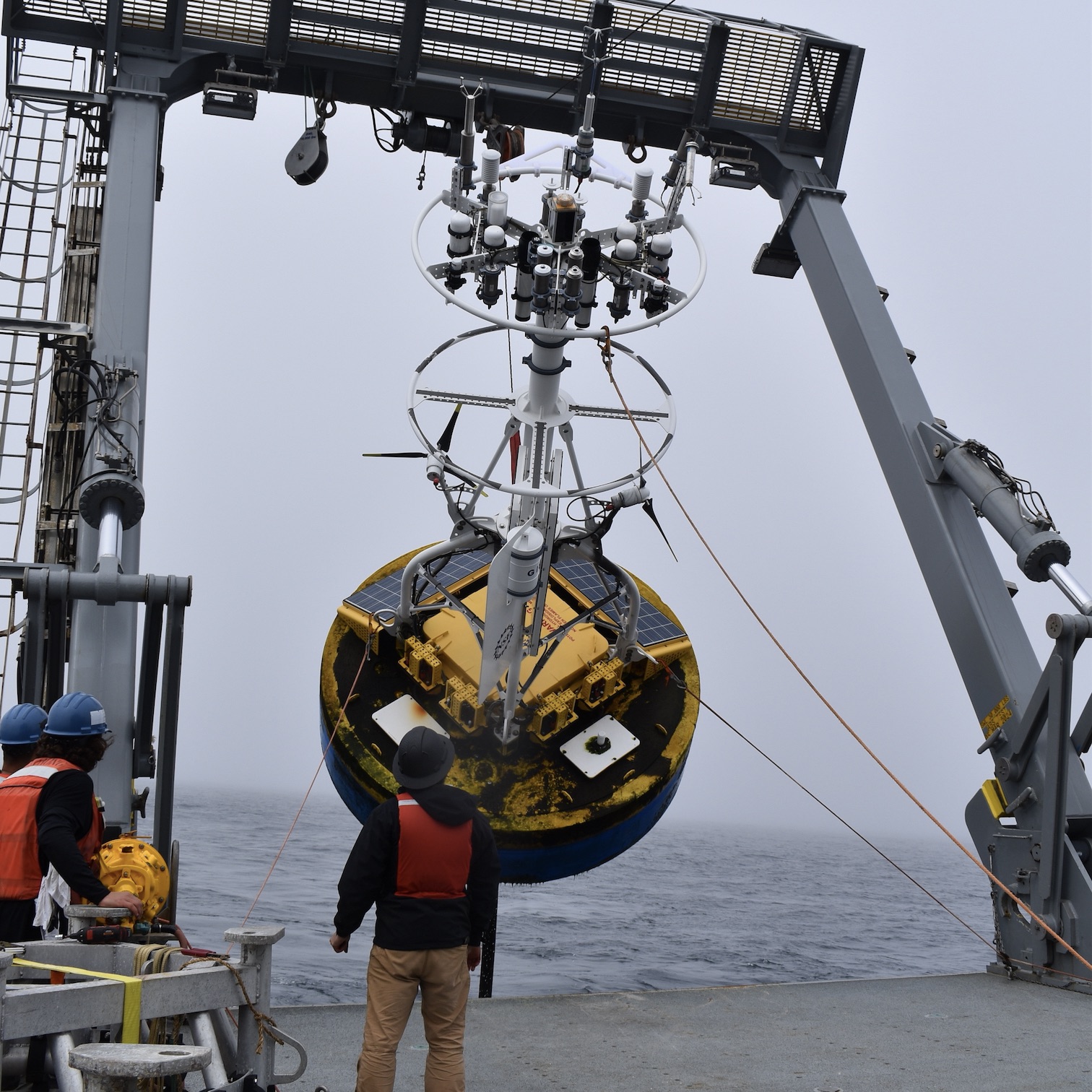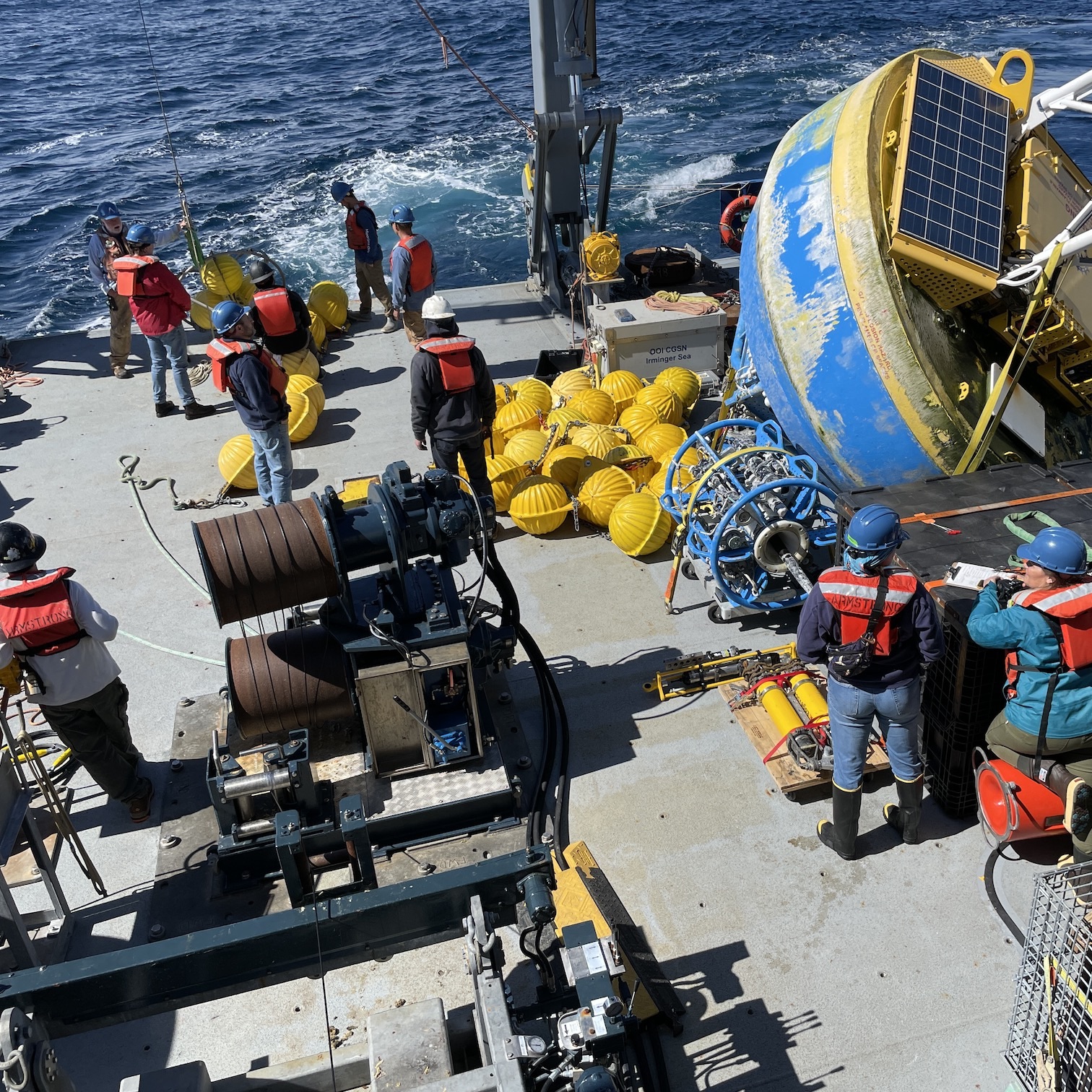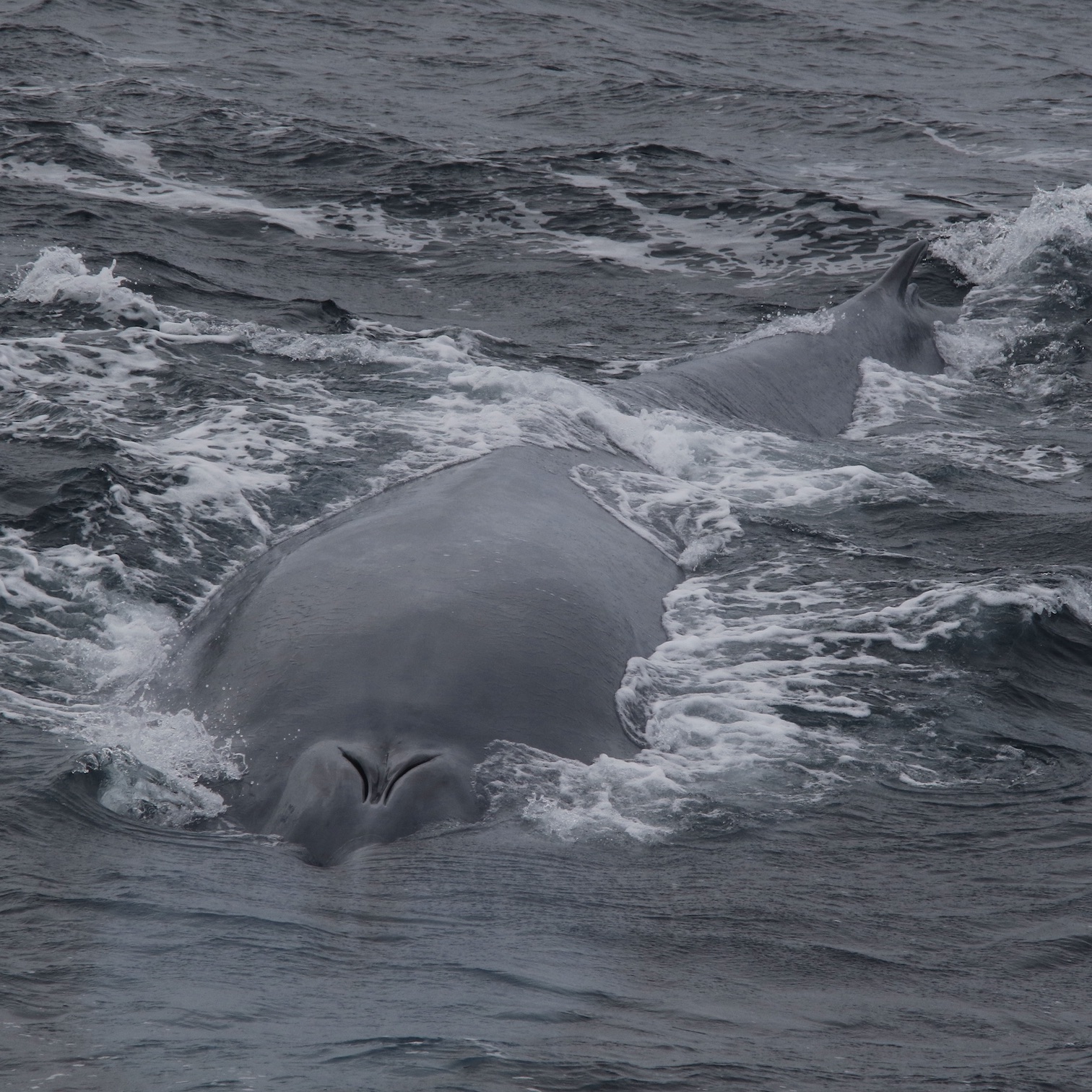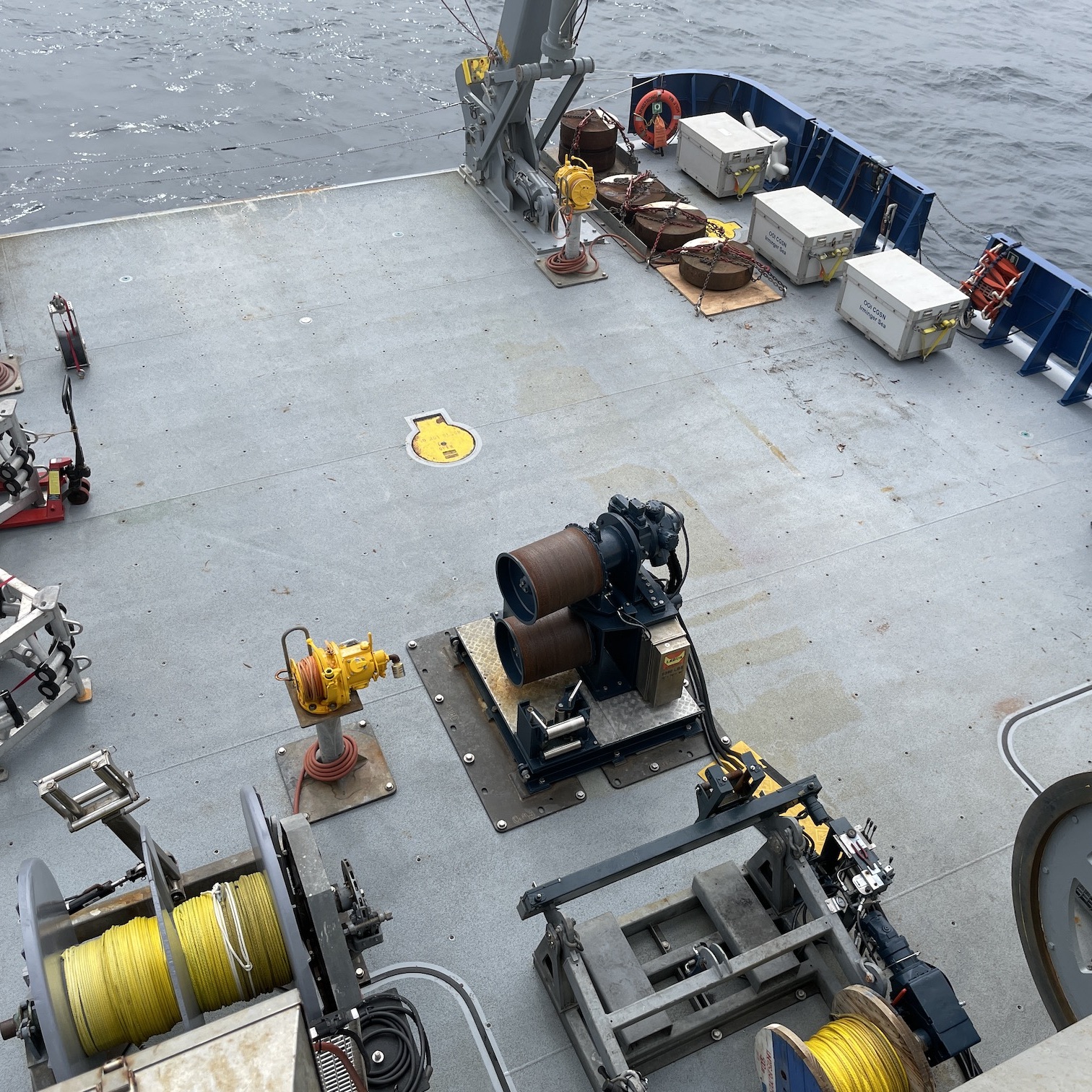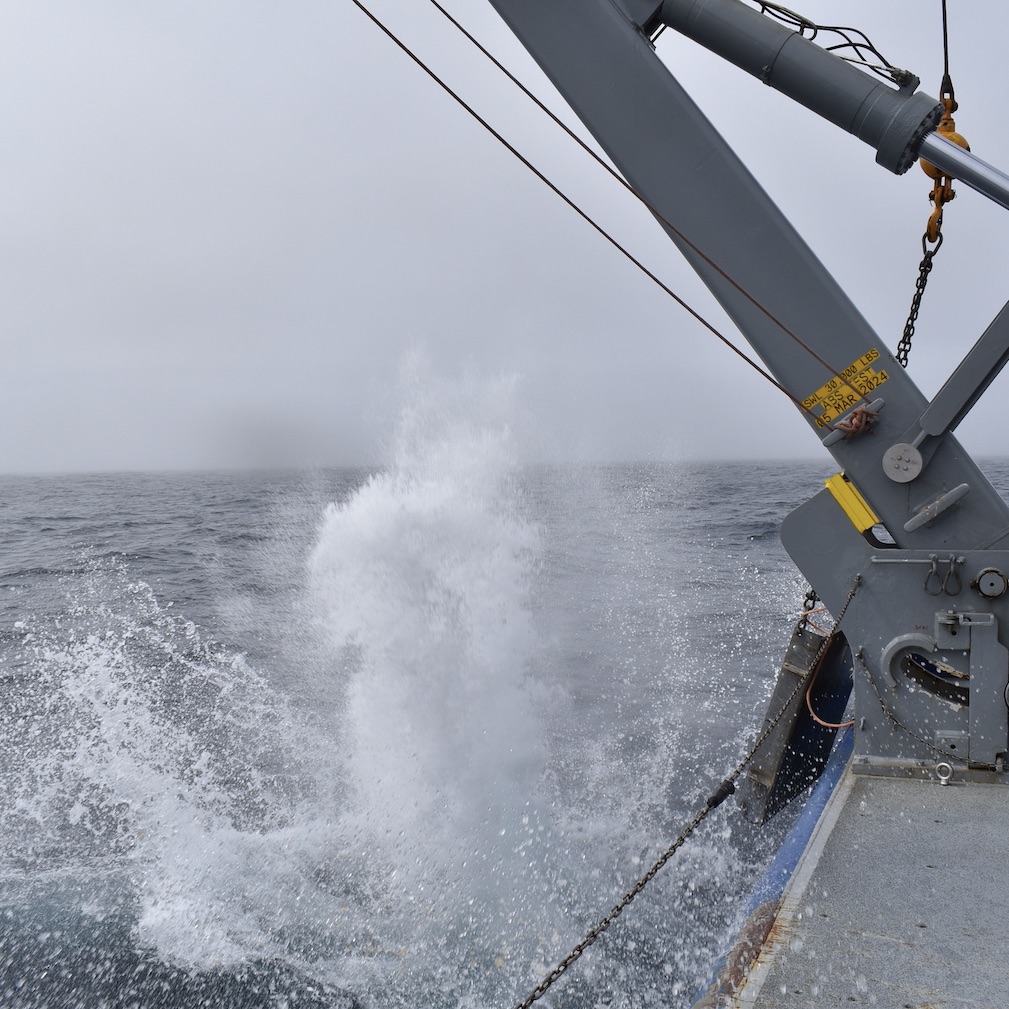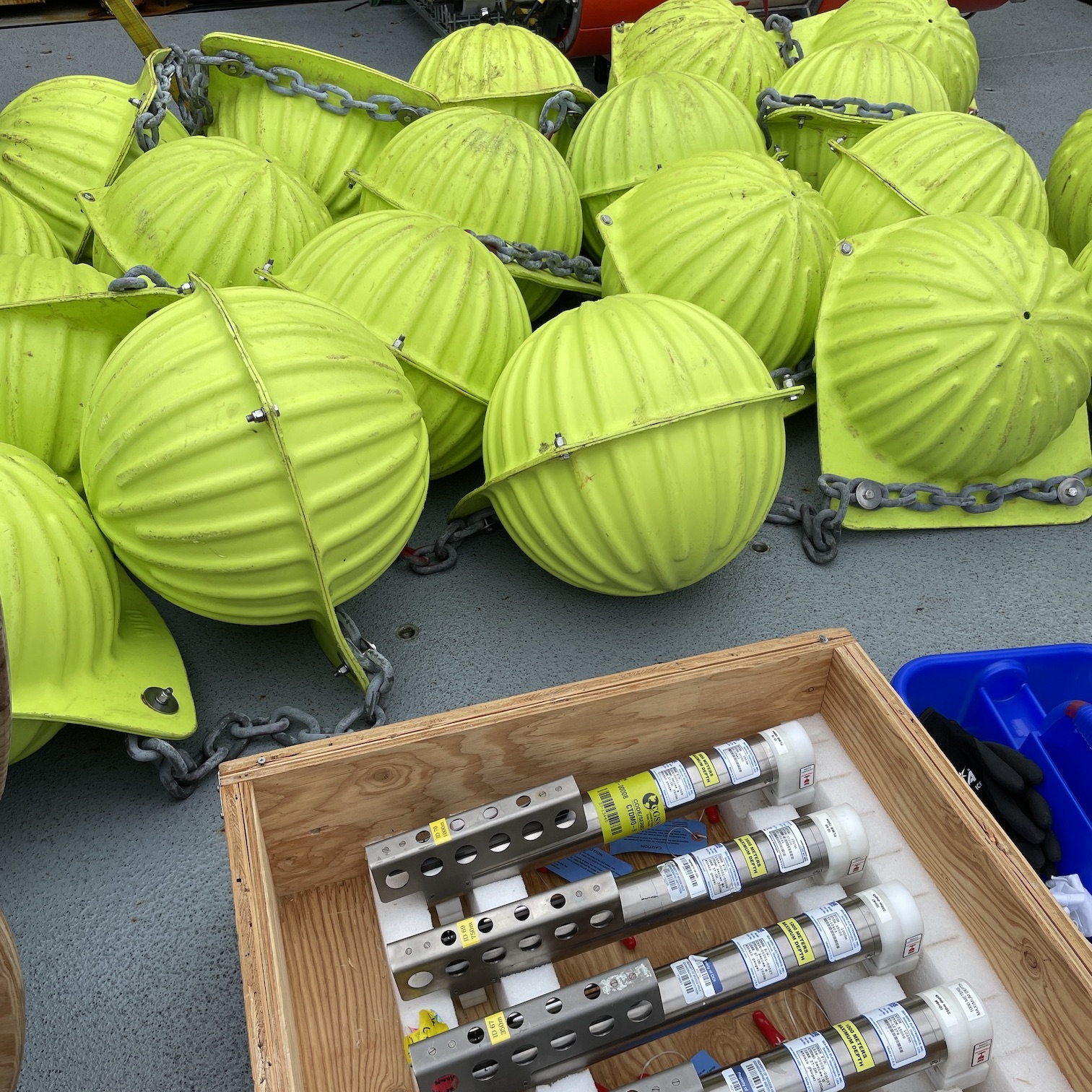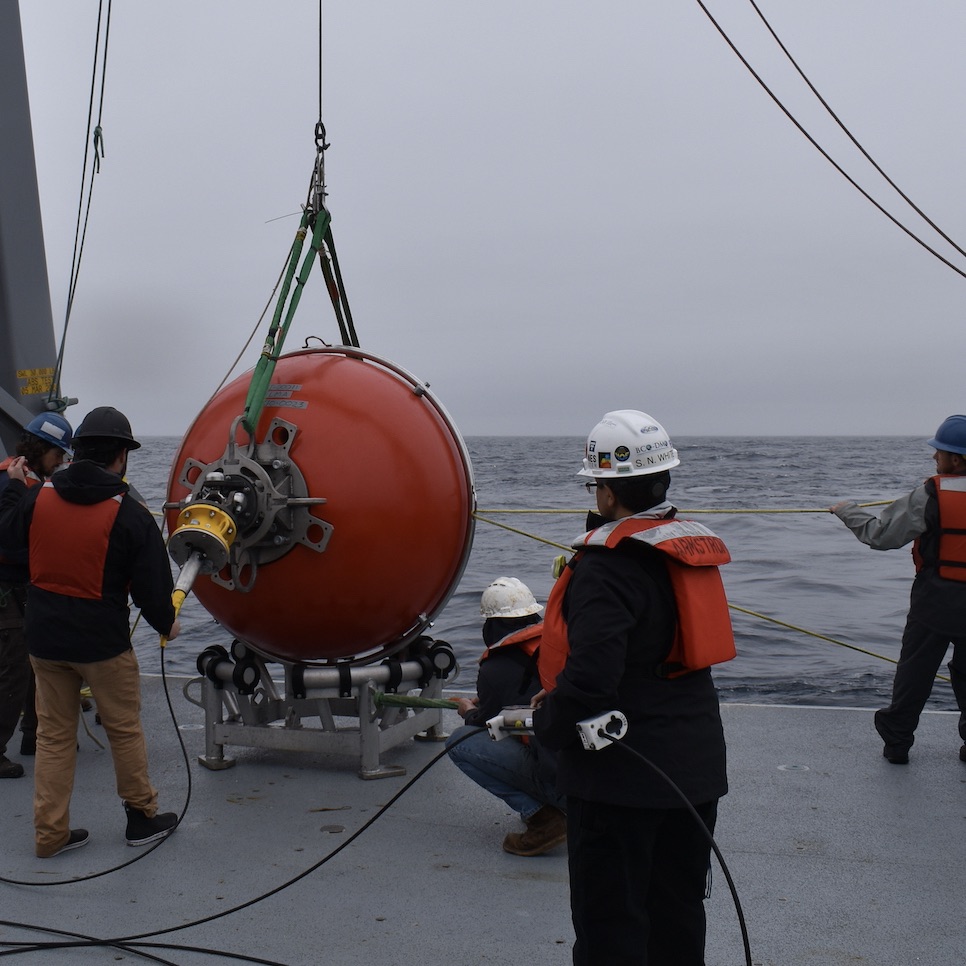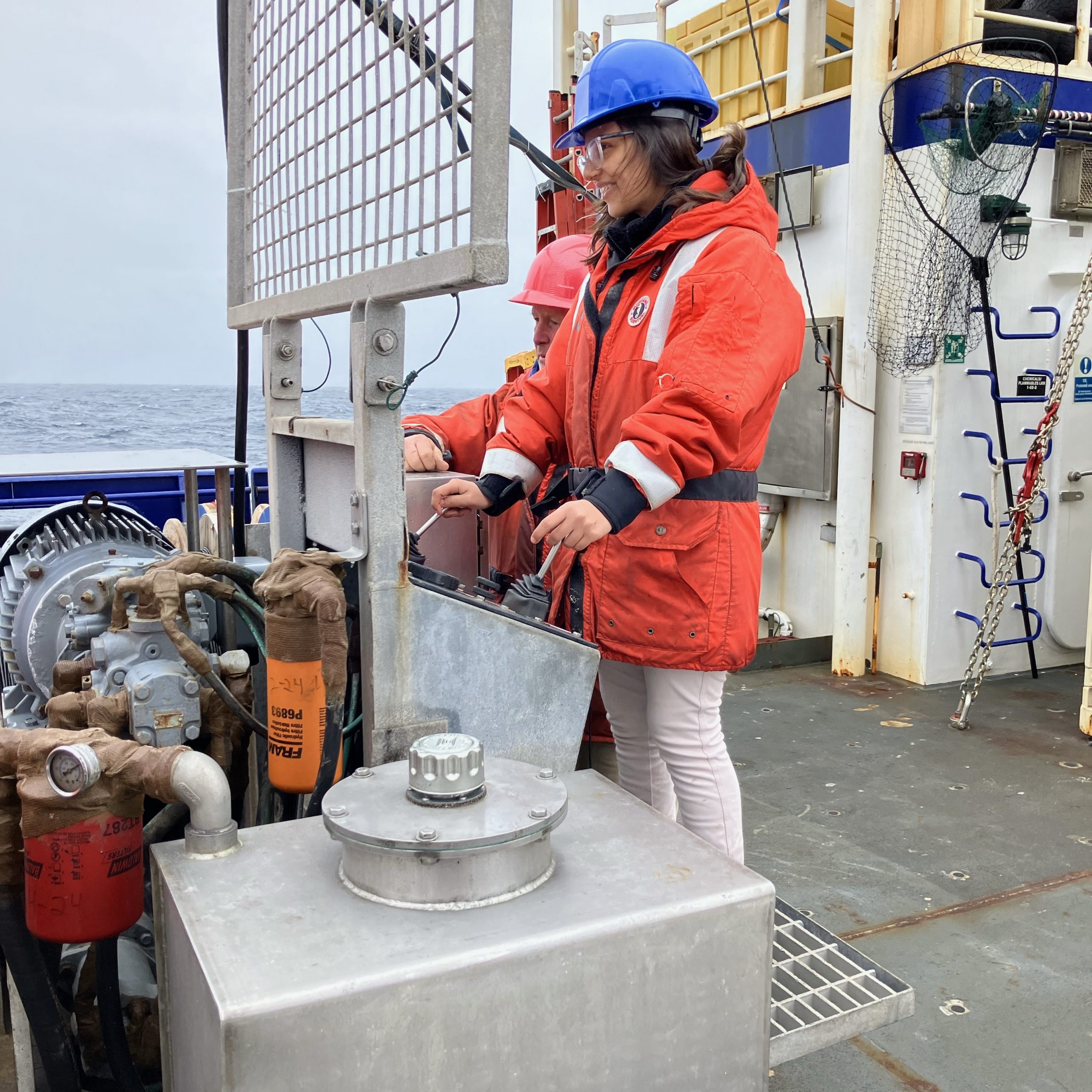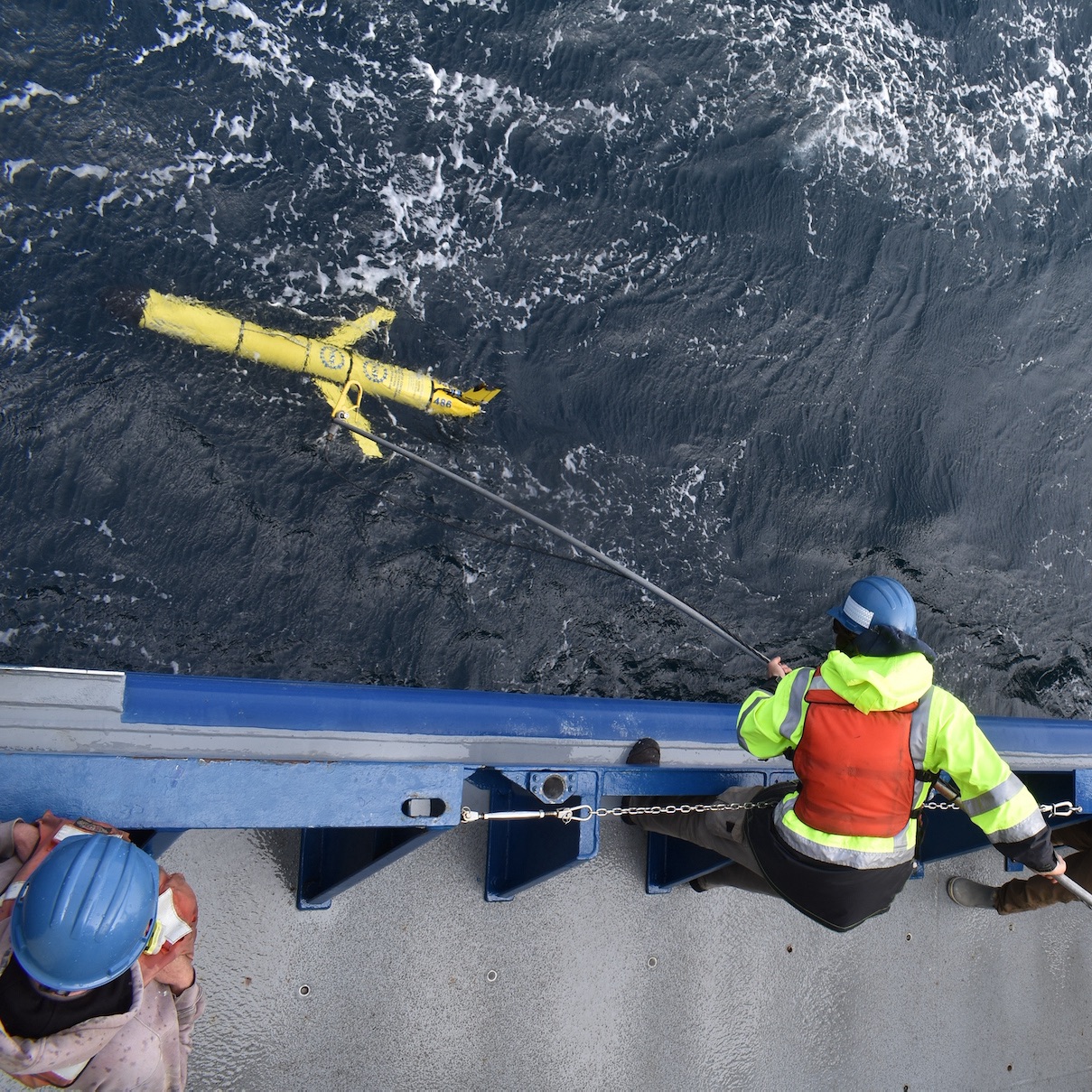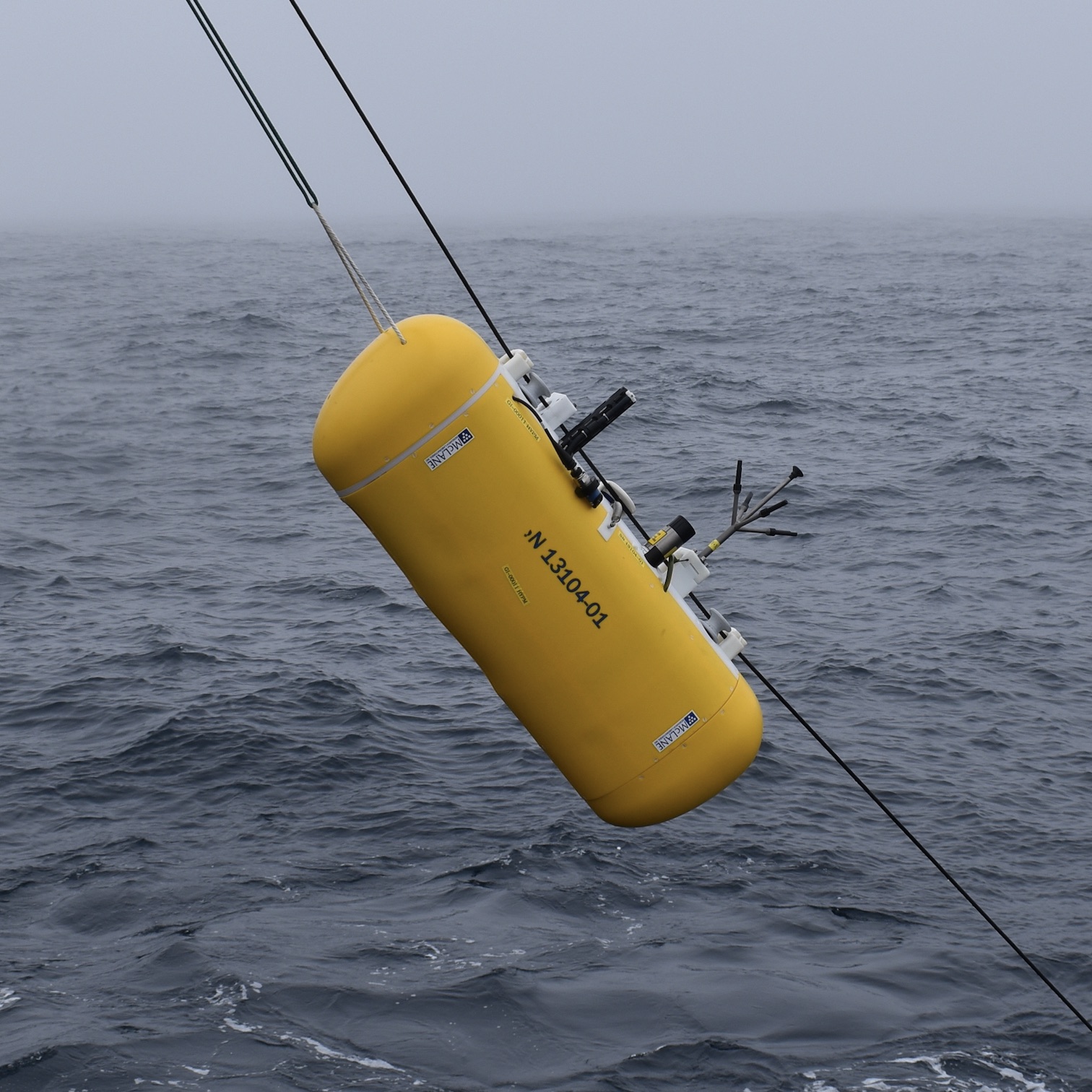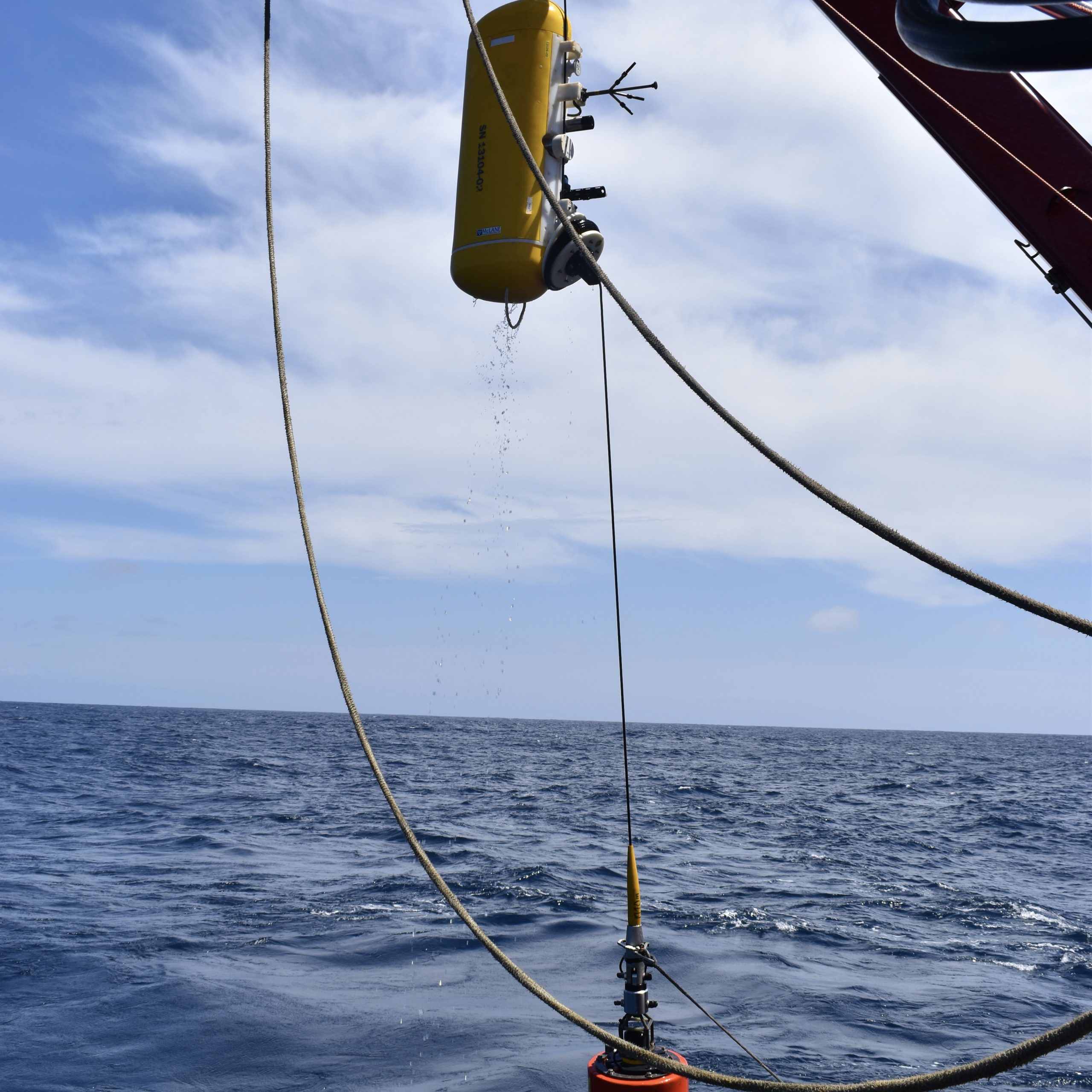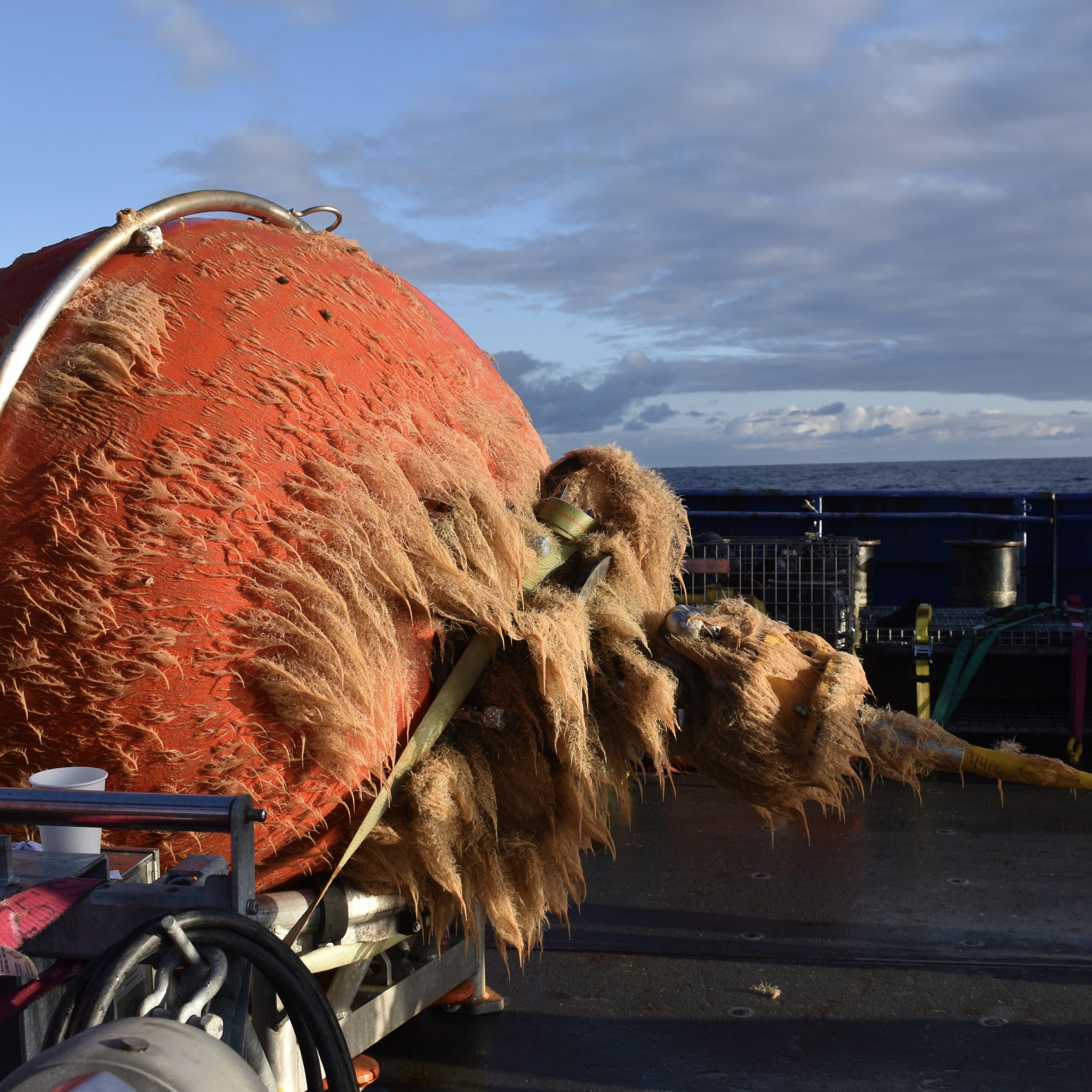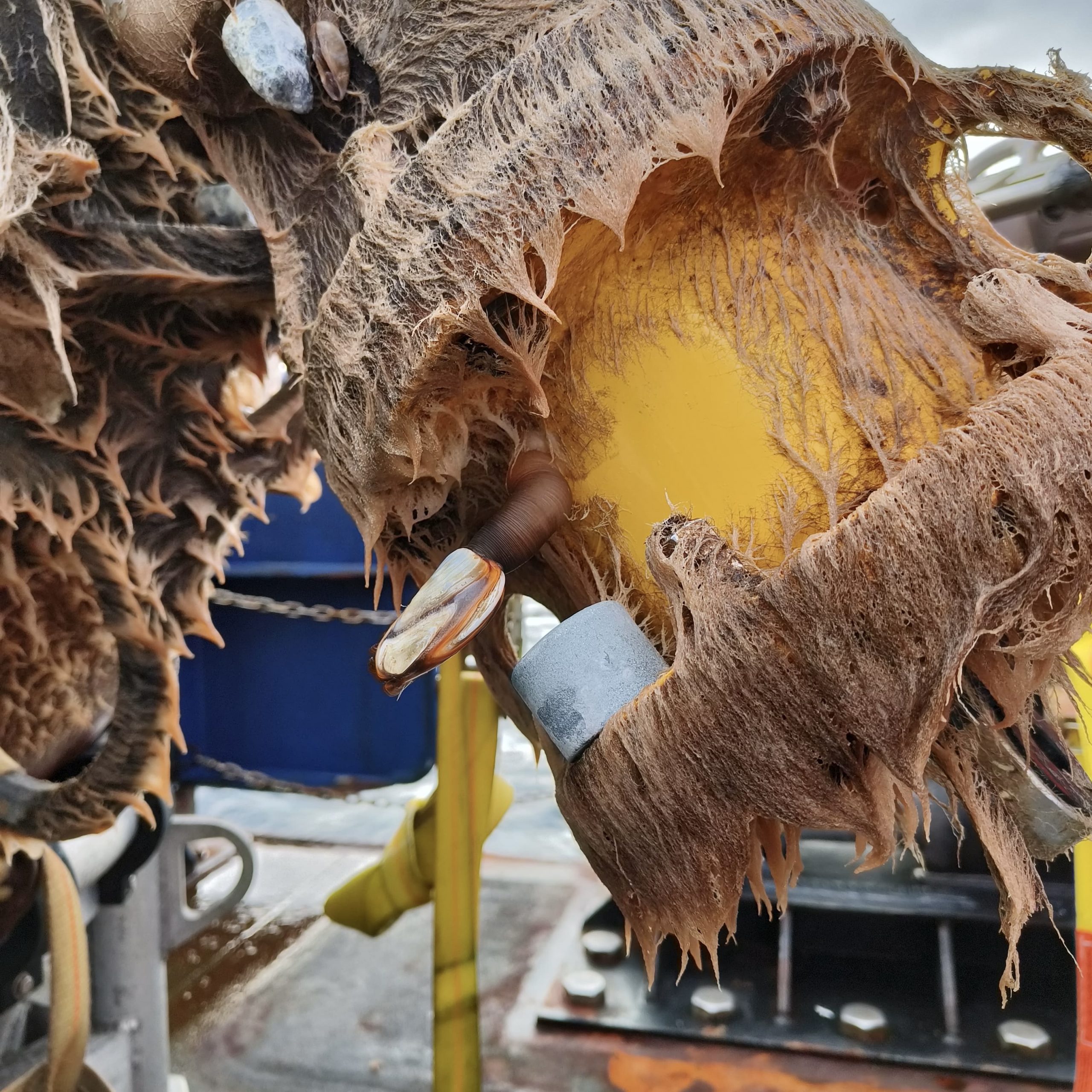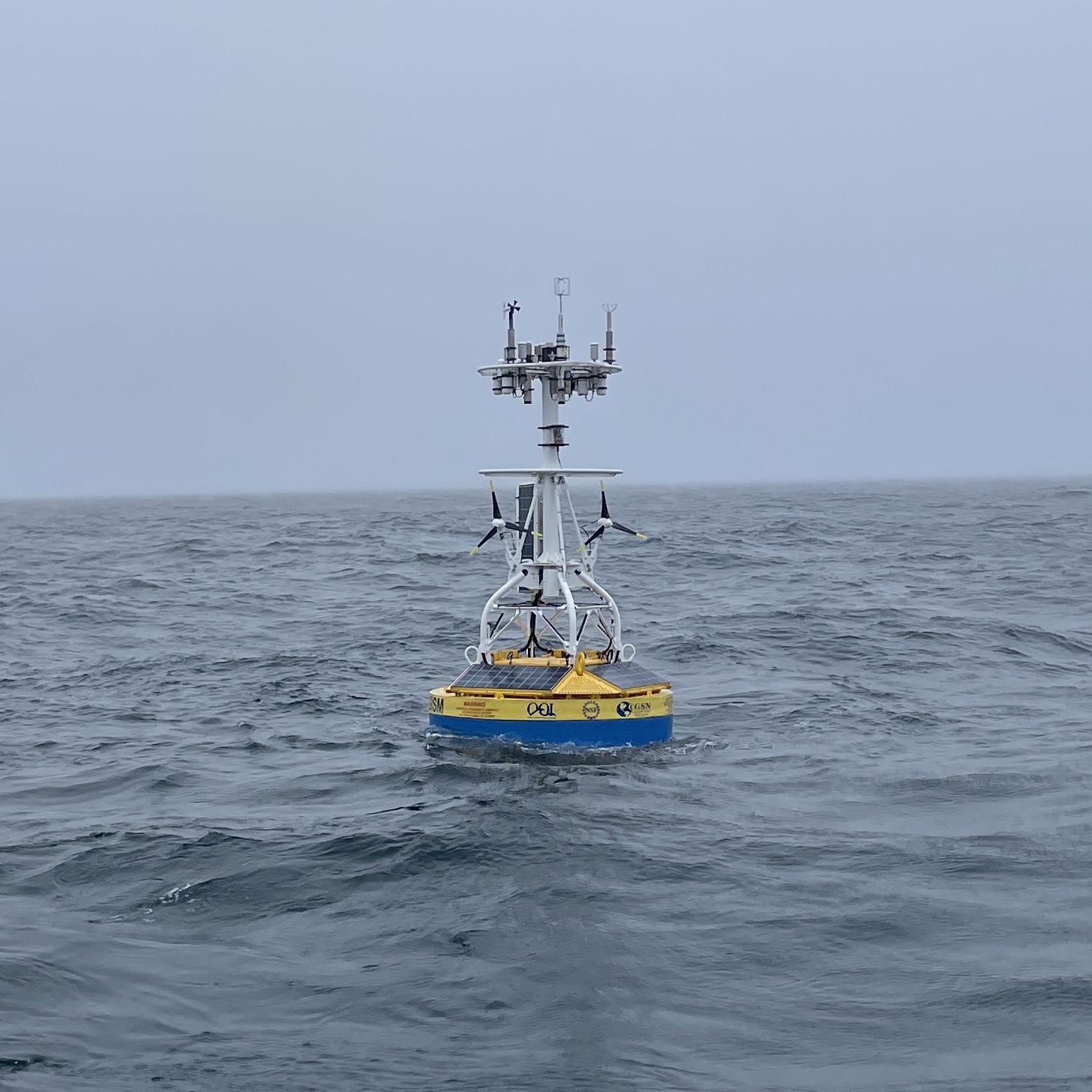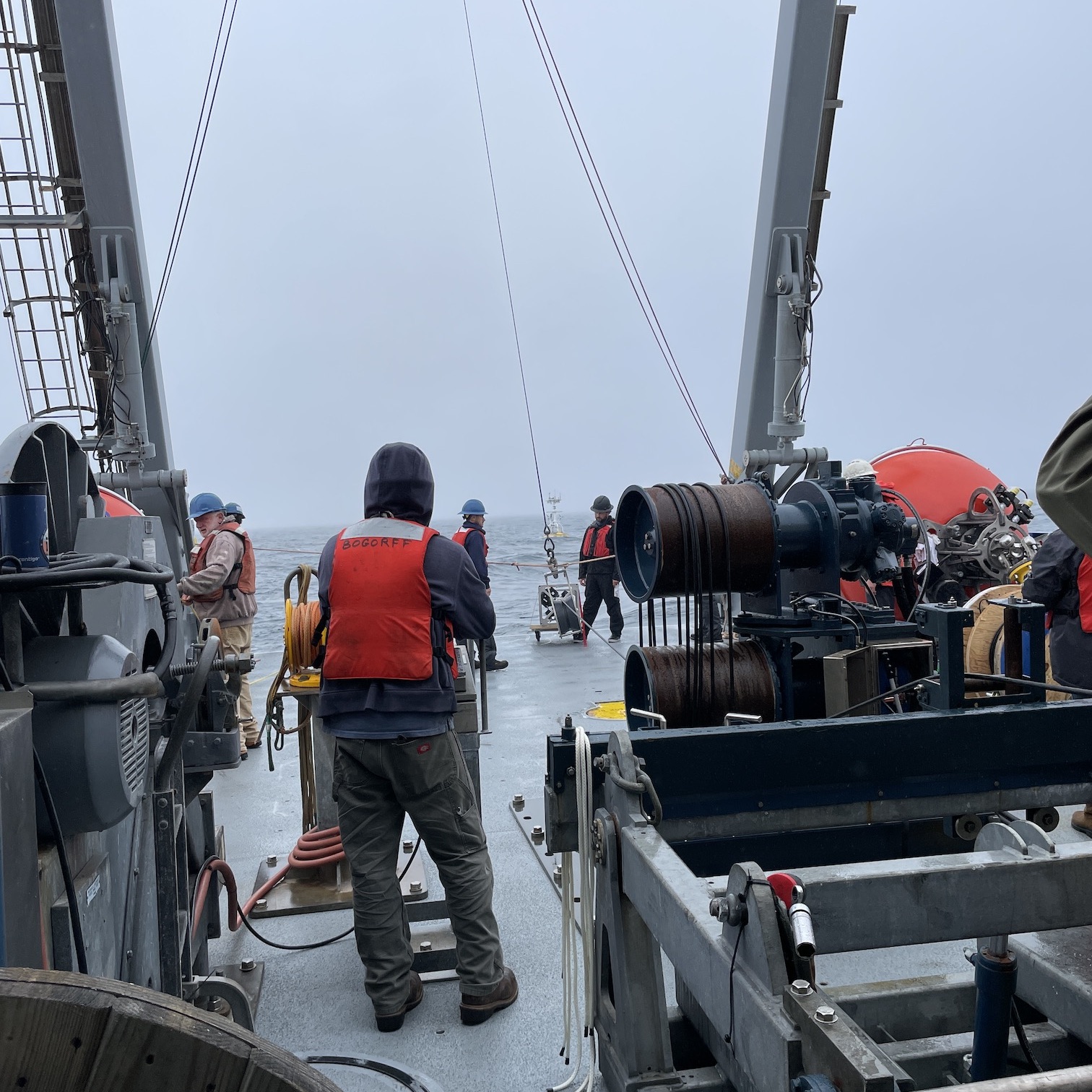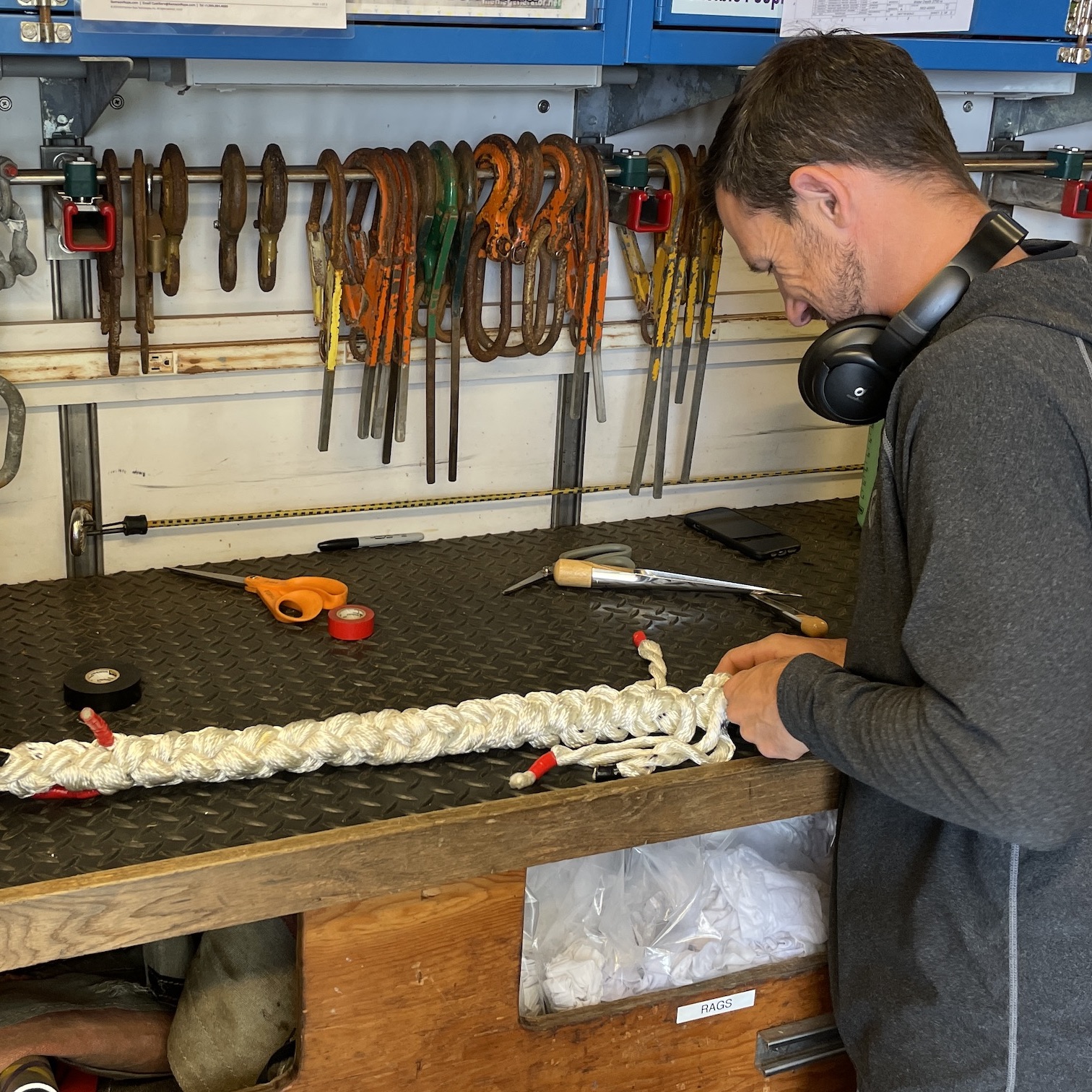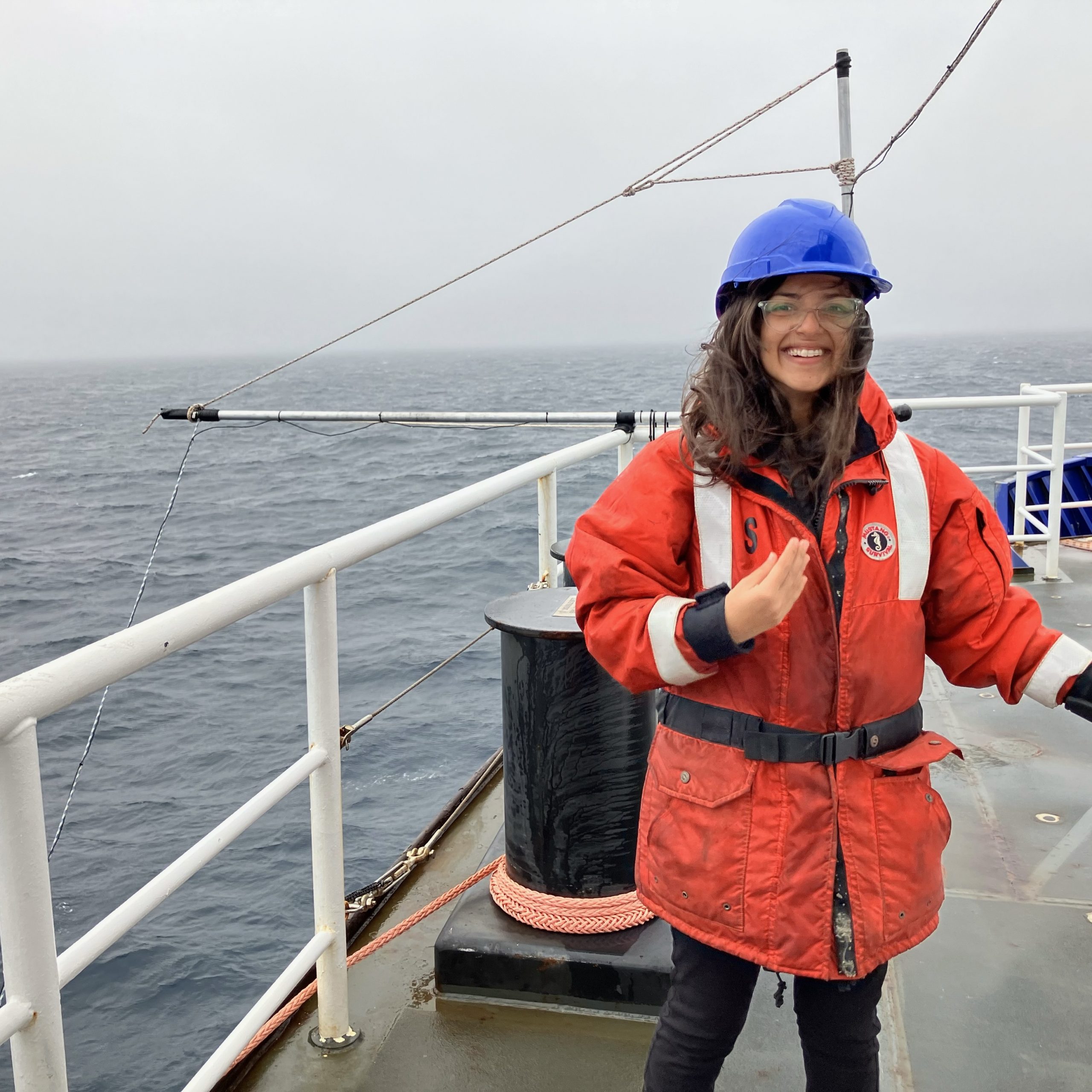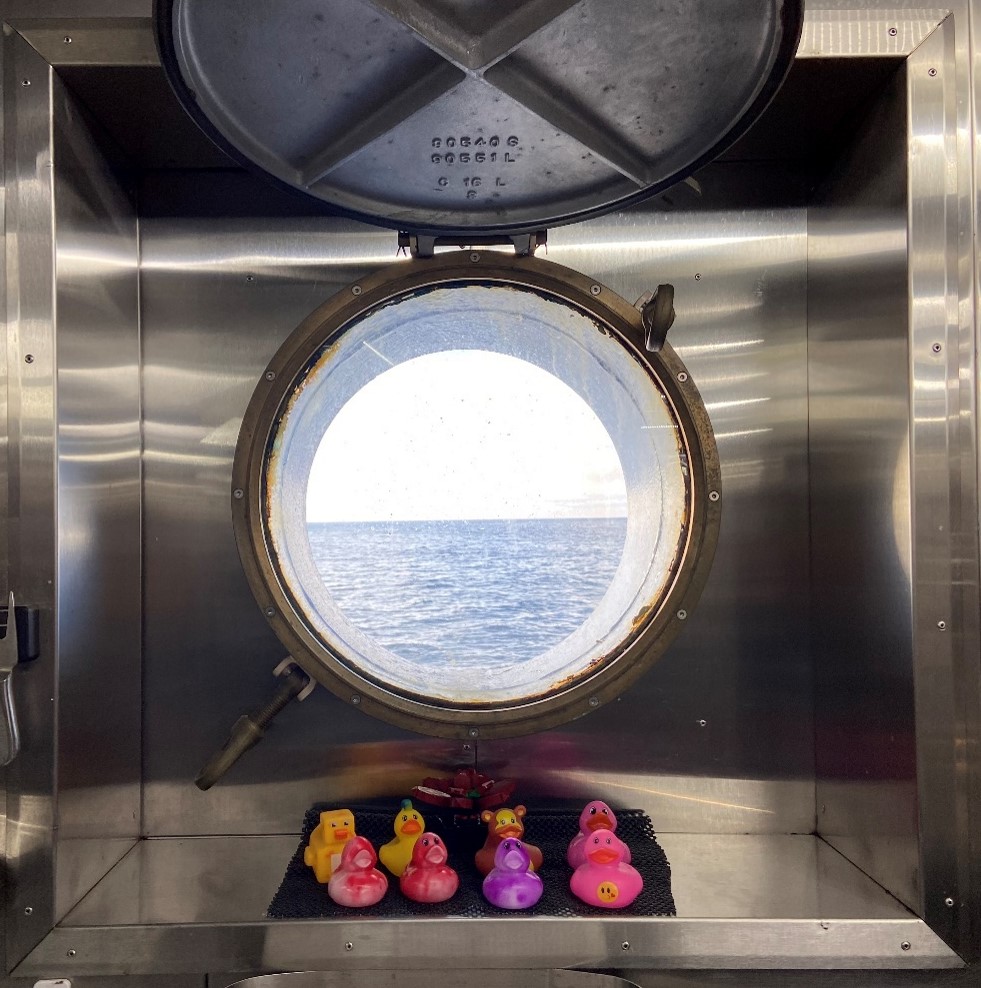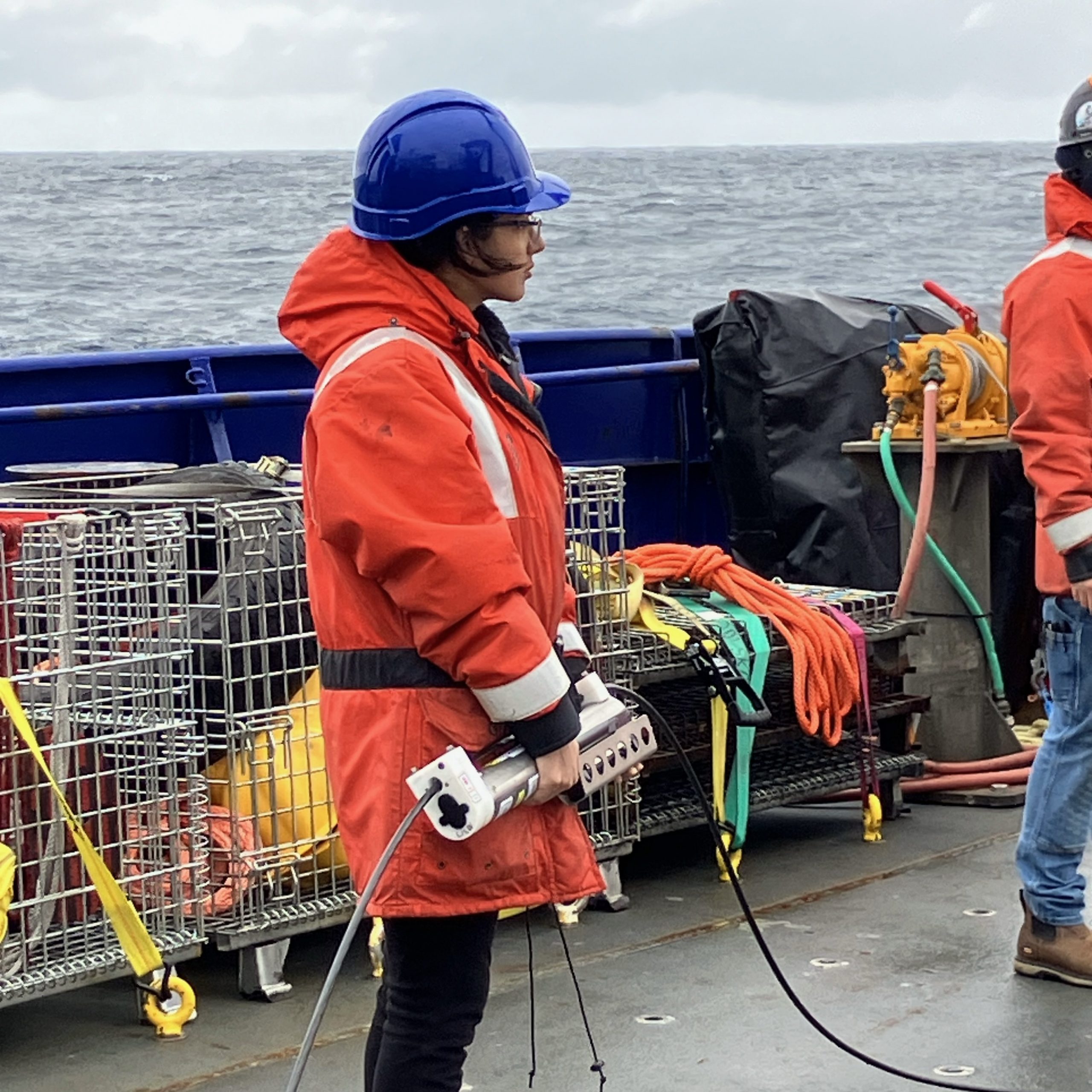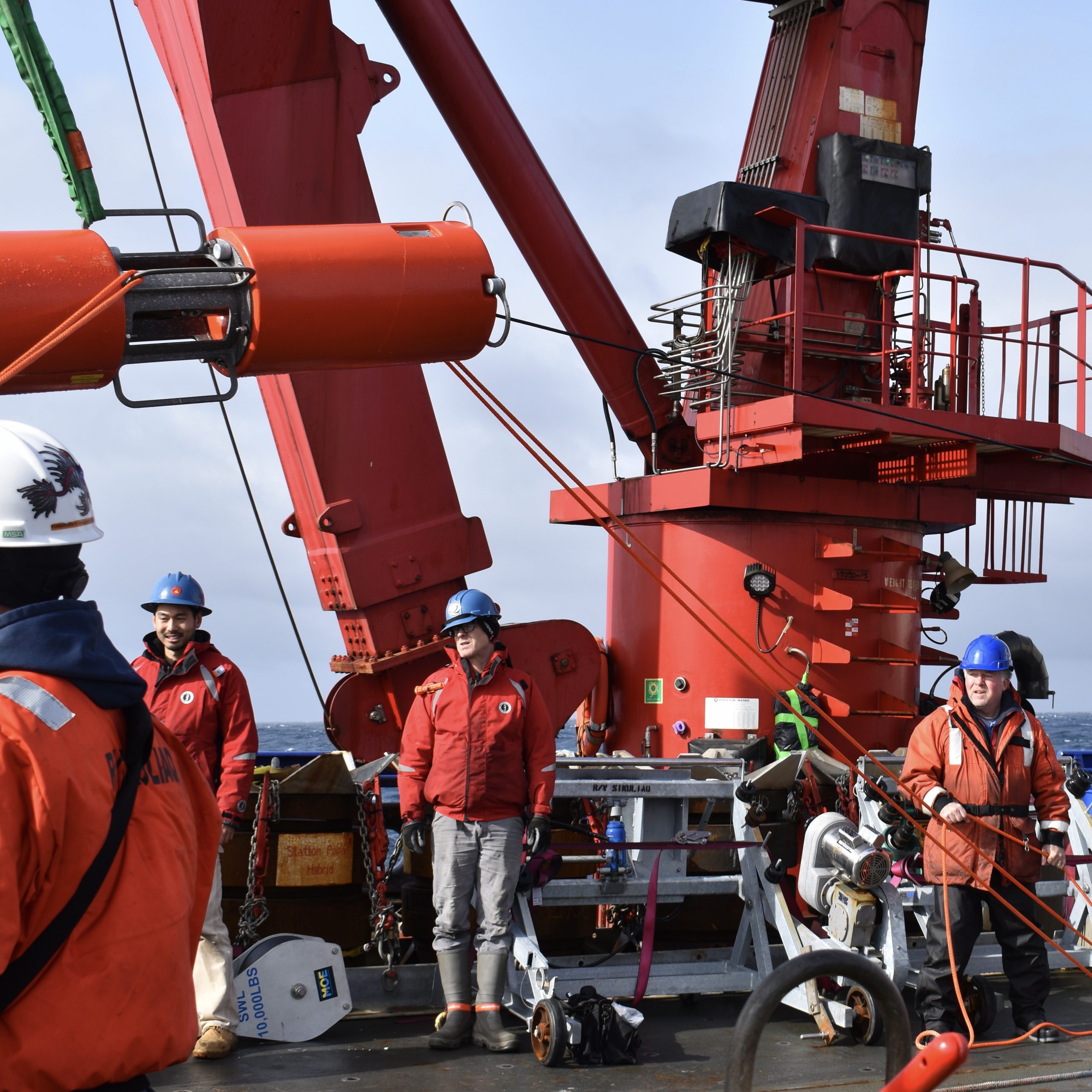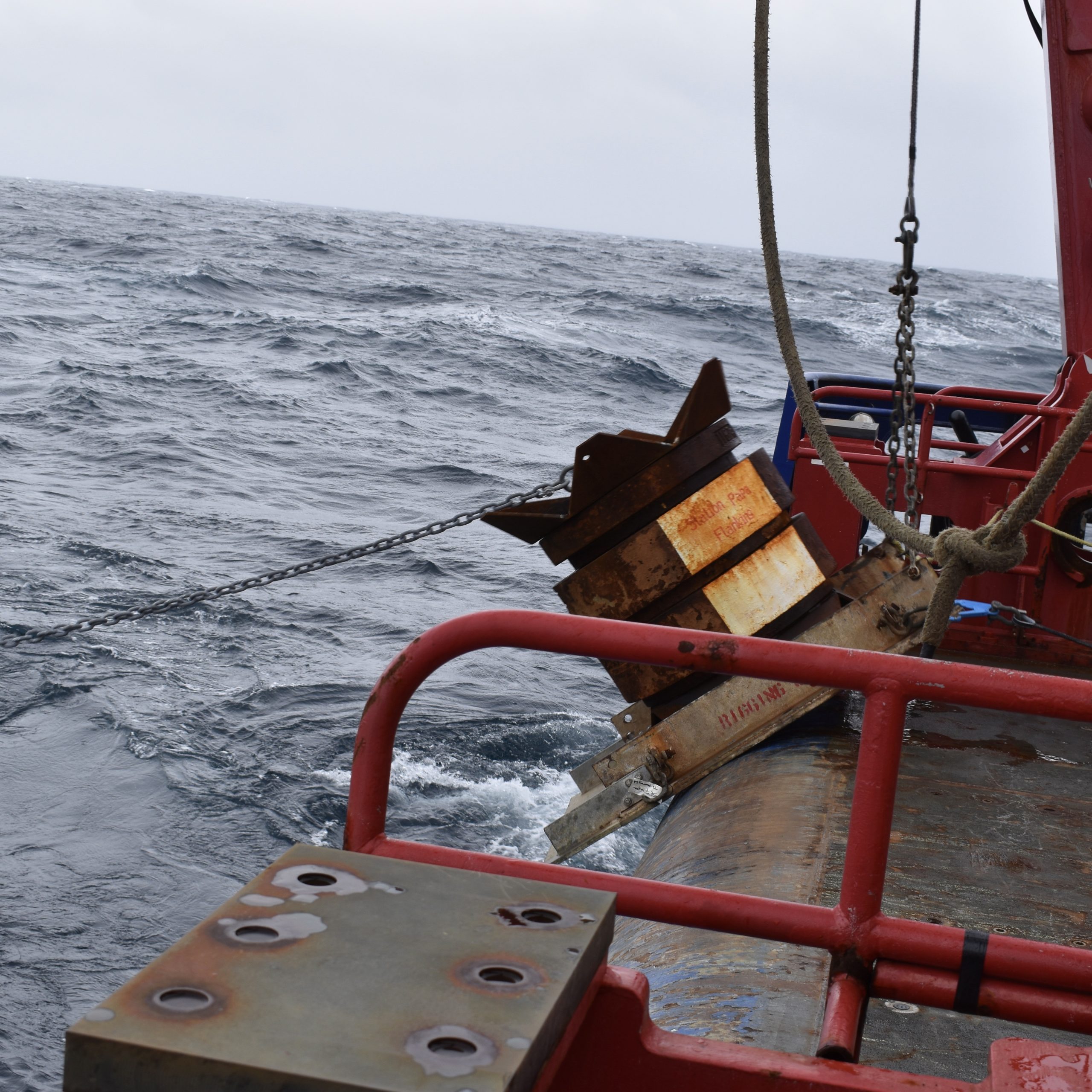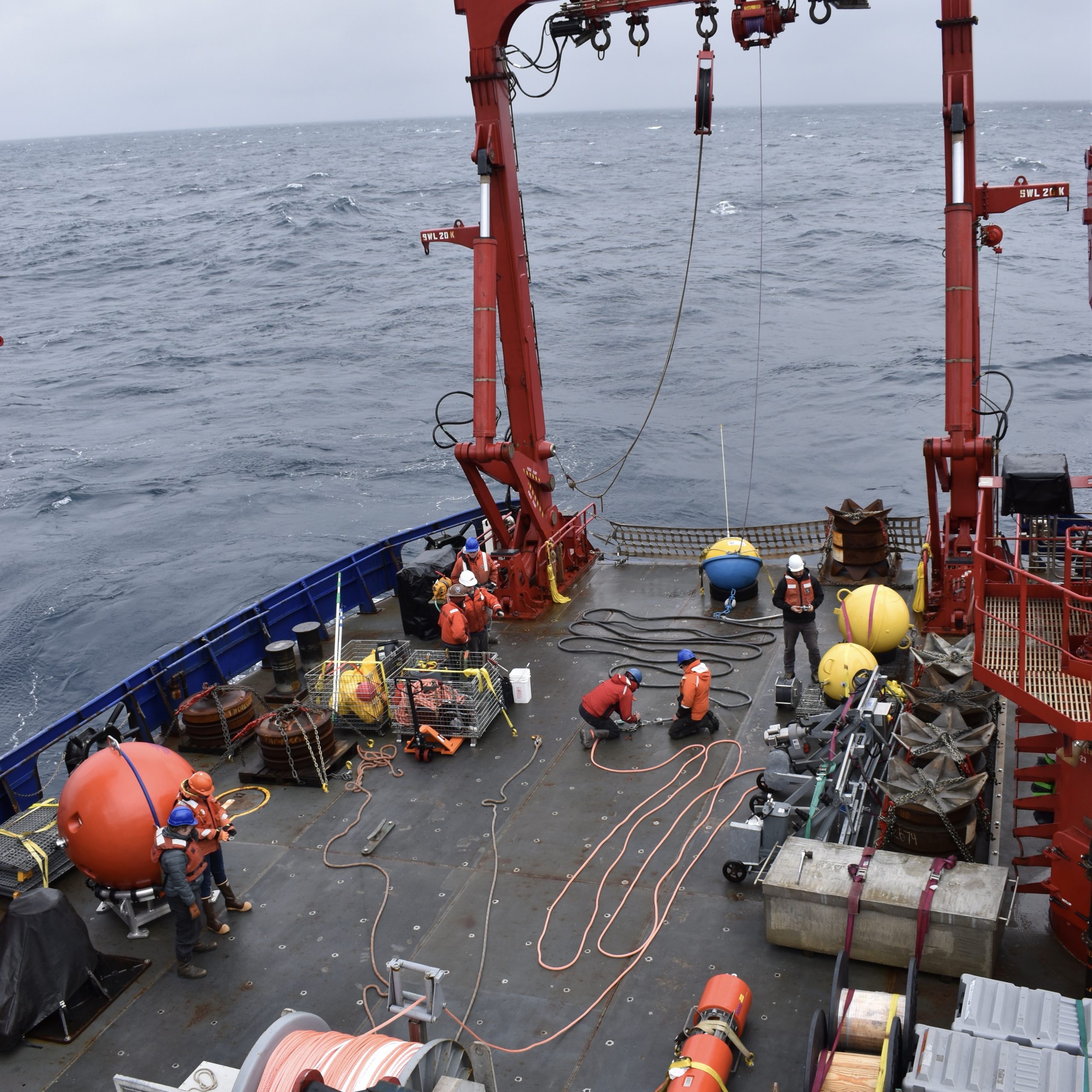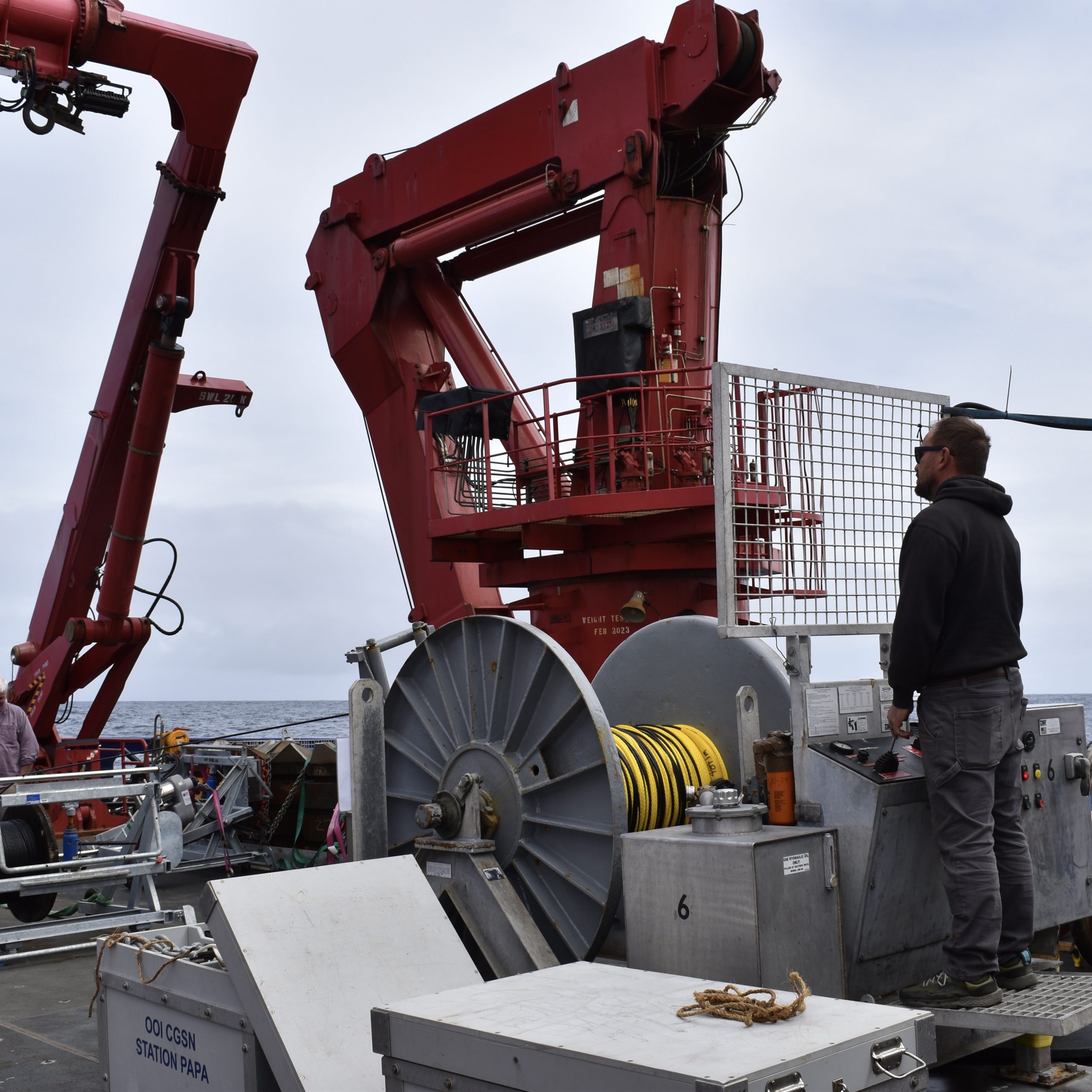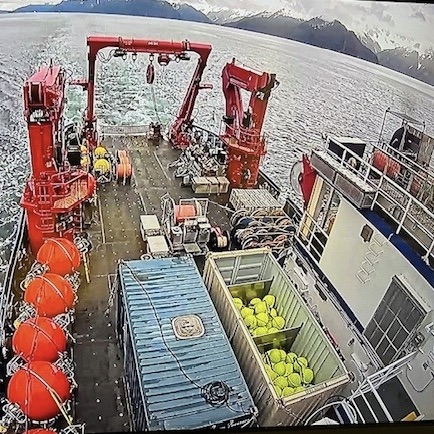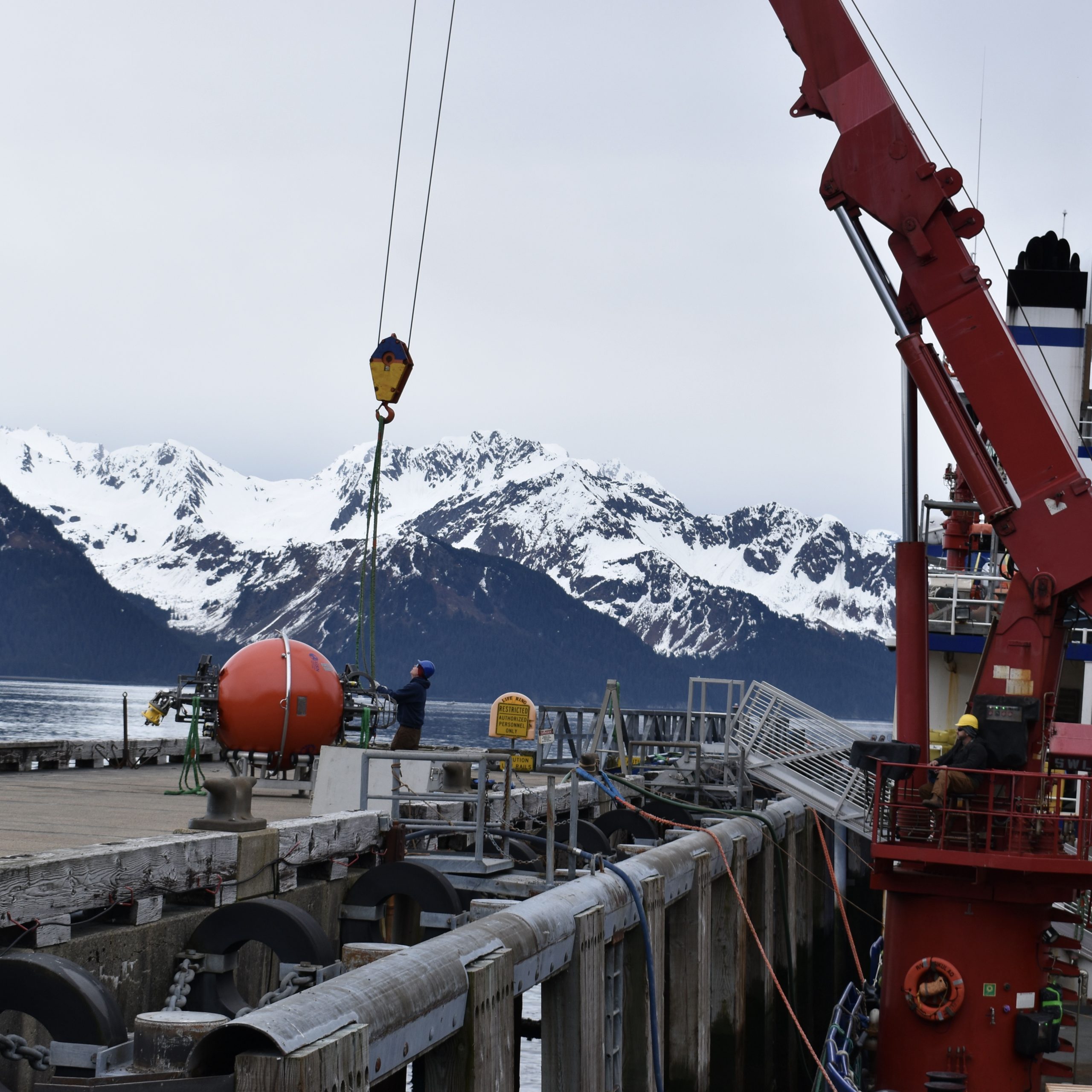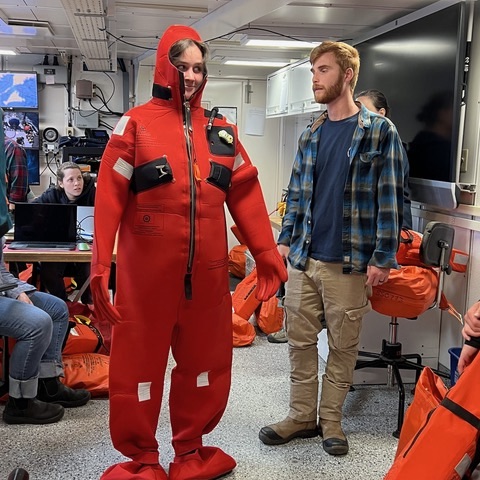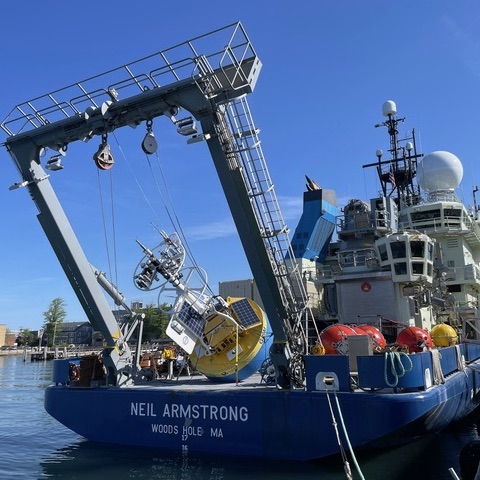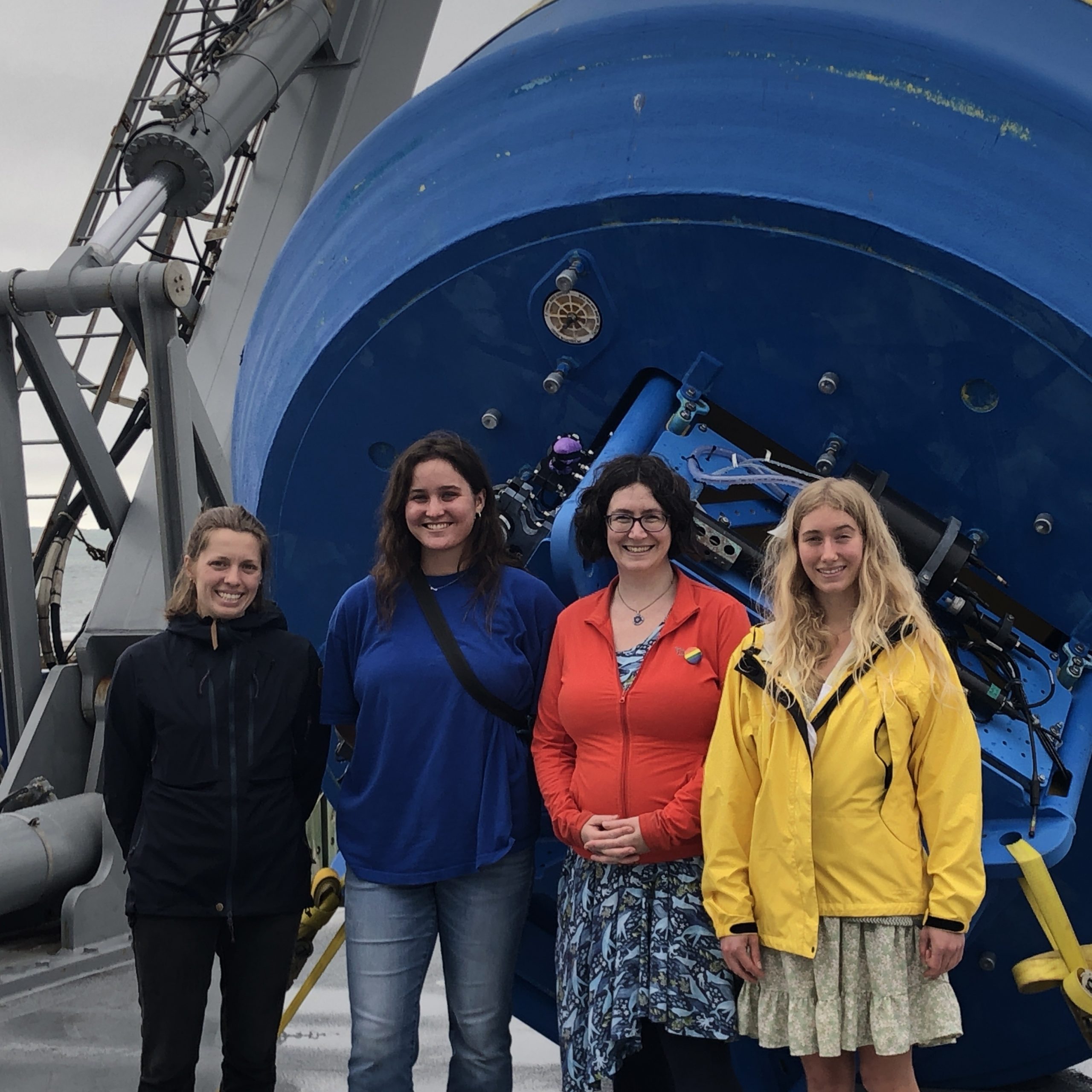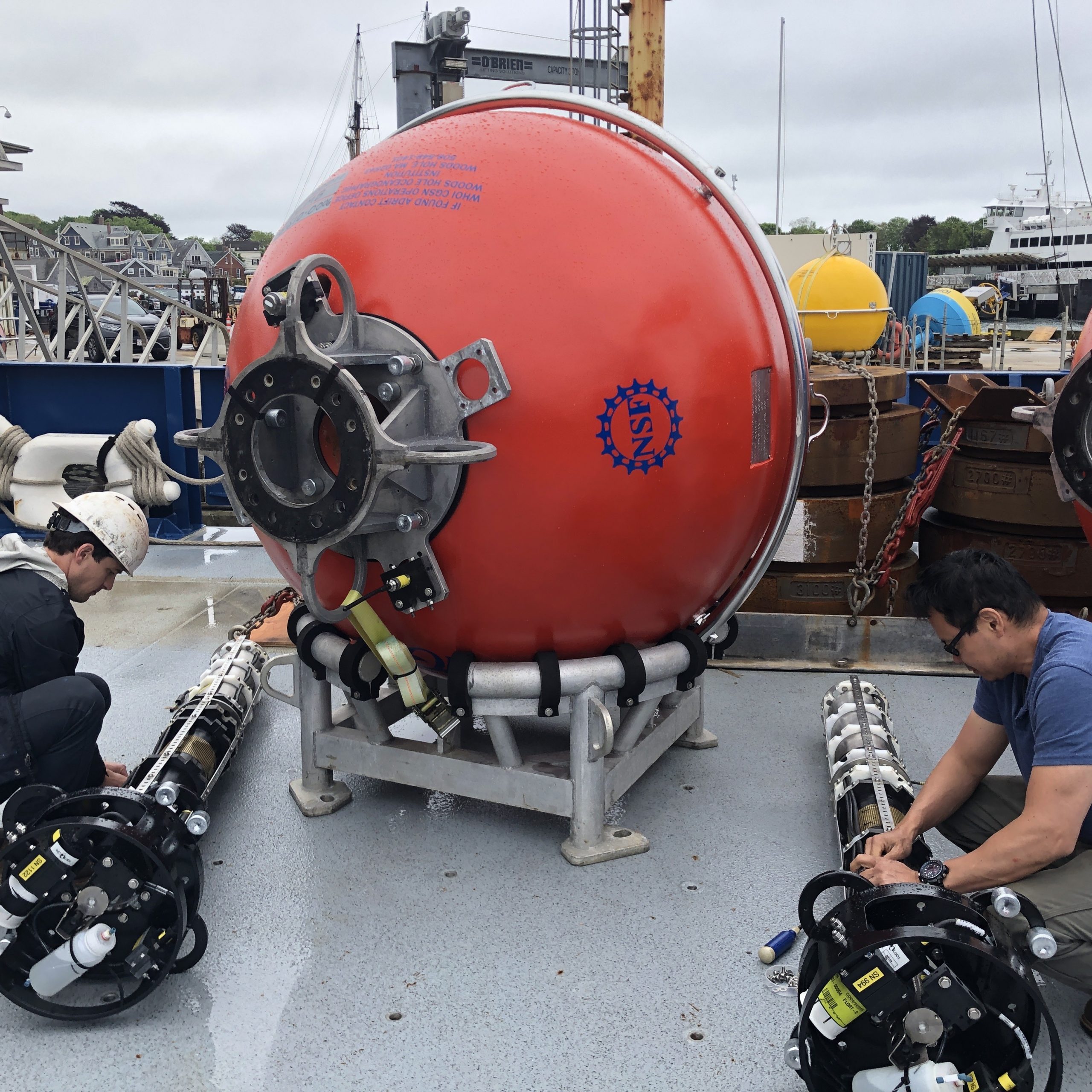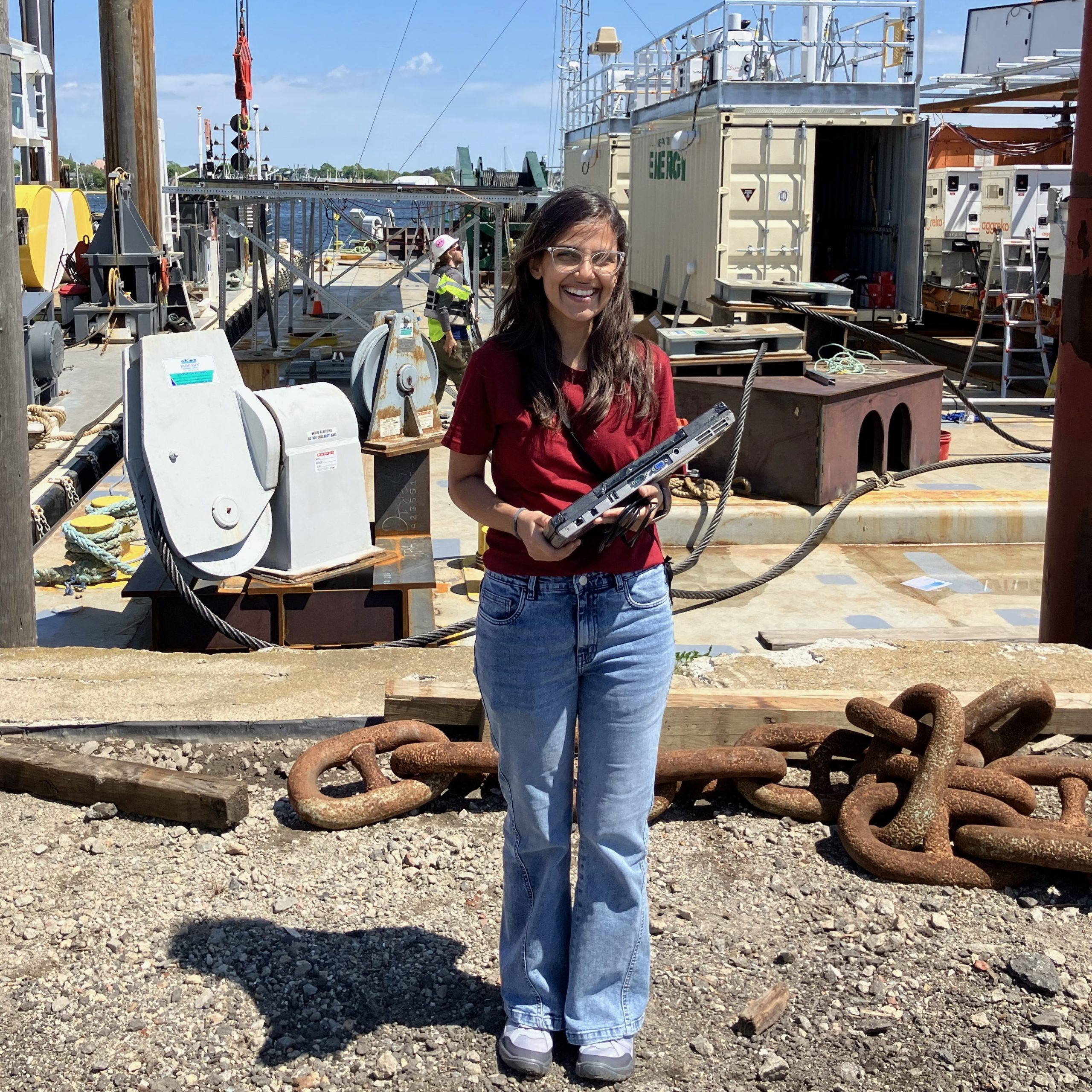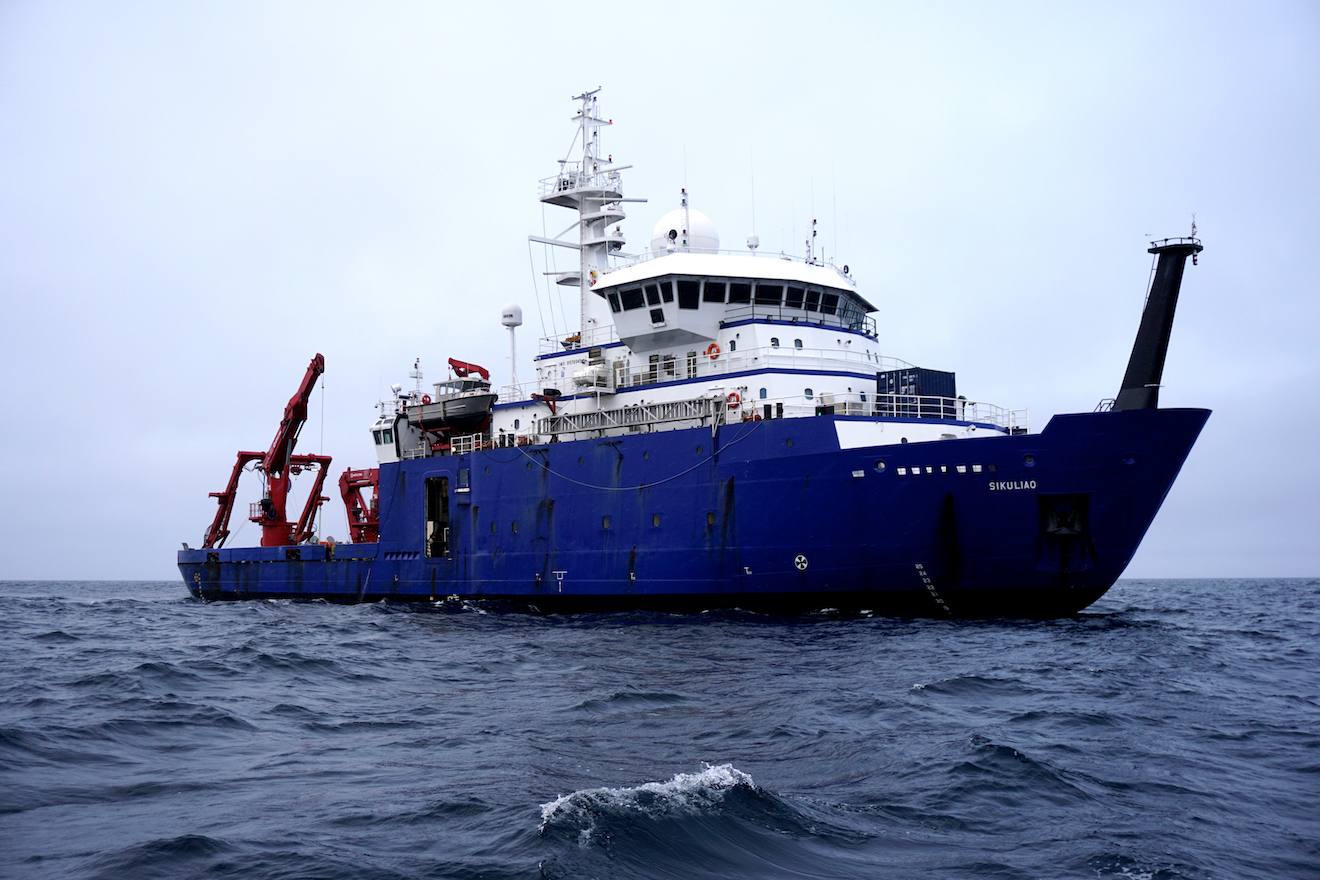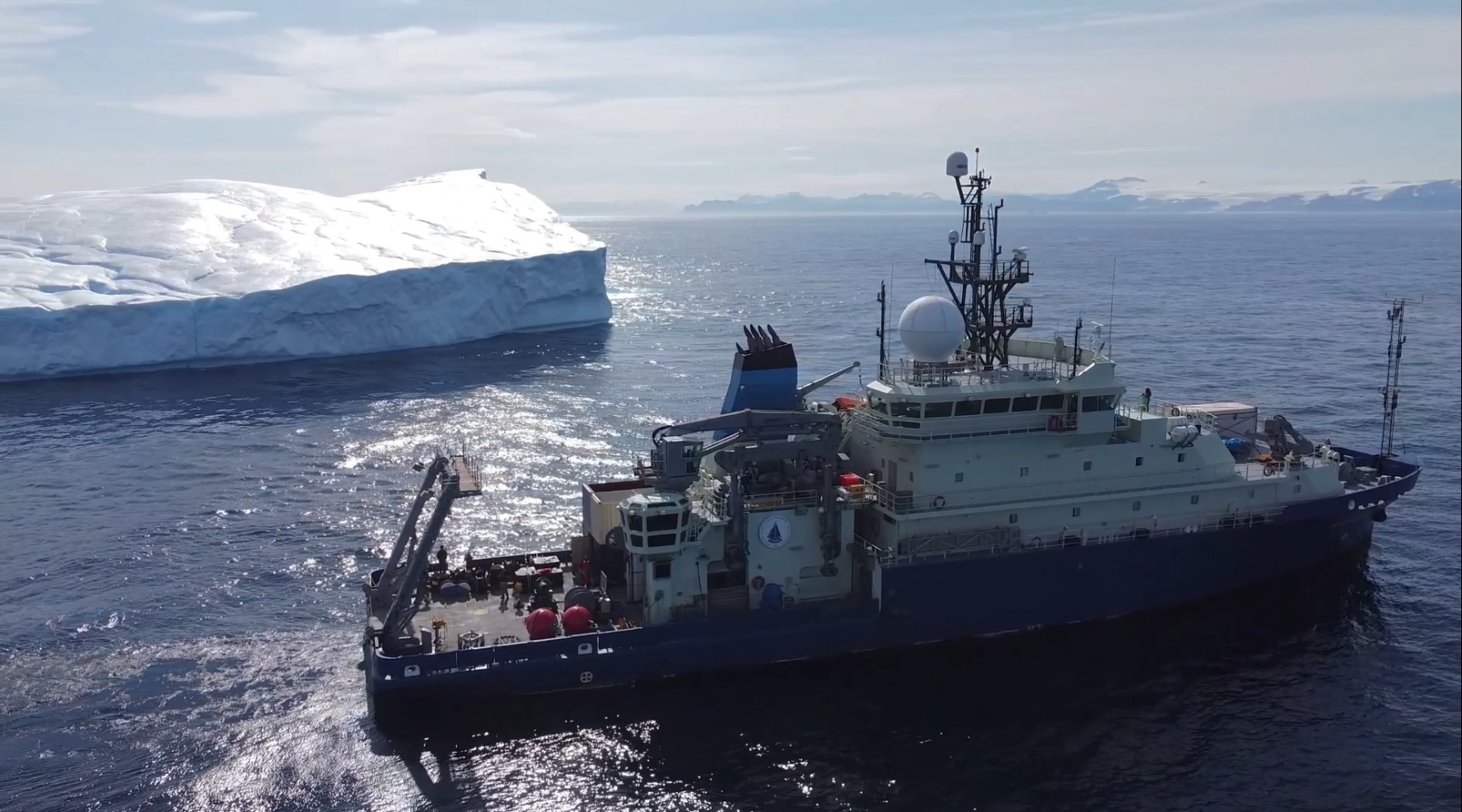EXPEDITION UPDATES
- All
- Endurance 16
- Endurance 17
- Endurance 18
- Endurance 19
- Endurance 20
- Endurance 21
- Endurance 22
- Irminger 10
- Irminger 11
- Irminger 9
- Pioneer 17
- Pioneer 18
- Pioneer 19
- Pioneer 21
- Pioneer MAB At-Sea Tests
- Pioneer MAB Initial Deployment
- Pioneer MAB Test Deployment
- RCA VISIONS 22
- RCA VISIONS 23
- RCA VISIONS 24
- Station Papa 9
- Station Papa 10
- Station Papa 11
- Station Papa 12
And It’s Done
IRMINGER: Mooring operations have been completed at the OOI Irminger Sea Array with the recovery…
Recovery Video
IRMINGER: See live action of a hybrid profiler mooring recovery. Video by Rebecca Travis ©…
Flanking Mooring B Recovery
IRMINGER: After deploying all of the “new” moorings, the CGSN team is now recovering the…
Pride Month!
IRMINGER: It’s Pride Month and rainbows colors are everywhere out aboard the R/V Neil Armstrong!!…
Surface Mooring Recovery
IRMINGER: The weather toyed with the CGSN team the day of the Surface Mooring recovery…
OSNAP Moorings In
IRMINGER: The Overturning the in the Subpolar North Atlantic Program (OSNAP) has a line of…
Blue Whale Sighting
IRMINGER: While the OOI and OSNAP teams are busy with mooring operations, Pete Duley from…
Flanking Mooring B Next
IRMINGER: The second Flanking Mooring was deployed at the OOI Irminger Sea Array; the last…
Flanking Mooring A In
IRMINGER: The OOI-CGSN team deployed Flanking Mooring A in the OOI Irminger Sea Array off…
Hands-On Experience for POGO Fellow
STATION PAPA: POGO Fellow Aditi Sharma is on the return leg to Seward, Alaska, having…
Glider Ops
IRMINGER: In addition to fixed moorings, the OOI Irminger Sea Array consists of autonomous gliders….
Profiler Mooring in the Water
IRMINGER: Another gray day in the Irminger Sea and another OOI mooring in the water….
Hybrid Profiler Mooring Recovered
STATION PAPA: The Station Papa moorings are replaced on a yearly schedule. Here the OOI-CGSN…
Work Completed Despite Weather
STATION PAPA: The RV Sikuliaq and the science party have been experiencing some rough weather,…
Giant Hairy Bearded Man
STATION PAPA, June 11, 2024: Recovery operations were set to begin once the deployment operations…
Large Surface Mooring Operational
IRMINGER: The large surface mooring at the OOI Irminger Sea Array is in the water…
Surface Mooring Deployed
IRMINGER: The OOI-CGSN team arrived at the OOI Irminger Sea Array ahead of a storm…
8 Day Transit Provides Prep Time
IRMINGER: It takes eight days to transit from Woods Hole to the Irminger Sea. During…
POGO Fellow Sharing Experiences
POGO Fellow Aditi Sharma is using down time aboard the R/V Sikuliaq to share her…
OSNAP Blog is Live
IRMINGER: Heather Furey, Adam Houk, and Meg Yoder are aboard the R/V Neil Armstrong along…
Fellow Learning the Ropes
STATION PAPA: India-based POGO Fellow Aditi Sharma has been busy aboard the R/V Sikuliaq in…
All Hands On Deck!
STATION PAPA: Everyone needs to pitch in when deck operations are happening. Here Jim Edson…
Hybrid Profiler Mooring in Water
STATION PAPA: The CGSN team successfully deployed a Hybrid Profiler Mooring (HYPM) at the Station…
UW Waverider Deployed
STATION PAPA: Onboard the Sikuliaq is the OOI-CGSN team to perform the yearly Station Papa…
Deployment Ready
STATION PAPA: While in transit, the OOI-CGSN team needs to prepare the various mooring components…
Build, Test, Load
STATION PAPA: The OOI-CGSN team completed the build, testing, and loading of the Station Papa…
Safety Drills
IRMINGER: Chief Mate Chris Manka showed Boston College student, Ayden Schirmacher, how to don an…
BC Biogeochemical Researchers
IRMINGER: A team from Boston College was aboard the R/V Neil Armstrong on Thursday May…
Securing Back Deck
IRMINGER: The Coastal and Global Scale Nodes team has been busy loading the deck of…
POGO Fellow Aboard
STATION PAPA: Aditi Sharma, a PhD candidate at the National Institute of Oceanography India, made…
R/V Sikuliaq
The 261-foot R/V Sikuliaq is one of the most advanced university research vessels in the world, capable of breaking ice up to 2.5 feet thick.
Pronounced [see-KOO-lee-auk], the vessel is owned by the National Science Foundation and operated by the College of Fisheries and Ocean Sciences at the University of Alaska Fairbanks, as part of the U.S. academic research fleet.
R/V Neil Armstrong
The R/V Neil Armstrong is a state-of-the-art oceangoing research vessel. The ship is 238 feet long, can sustain speeds of 10 knots, has a range of 11,500 nautical miles, and can remain at sea for up to 40 days. Named for the American hero whose “small step” provided humanity with a new perspective on our planet, this vessel carries on its namesake’s legacy of exploration.
